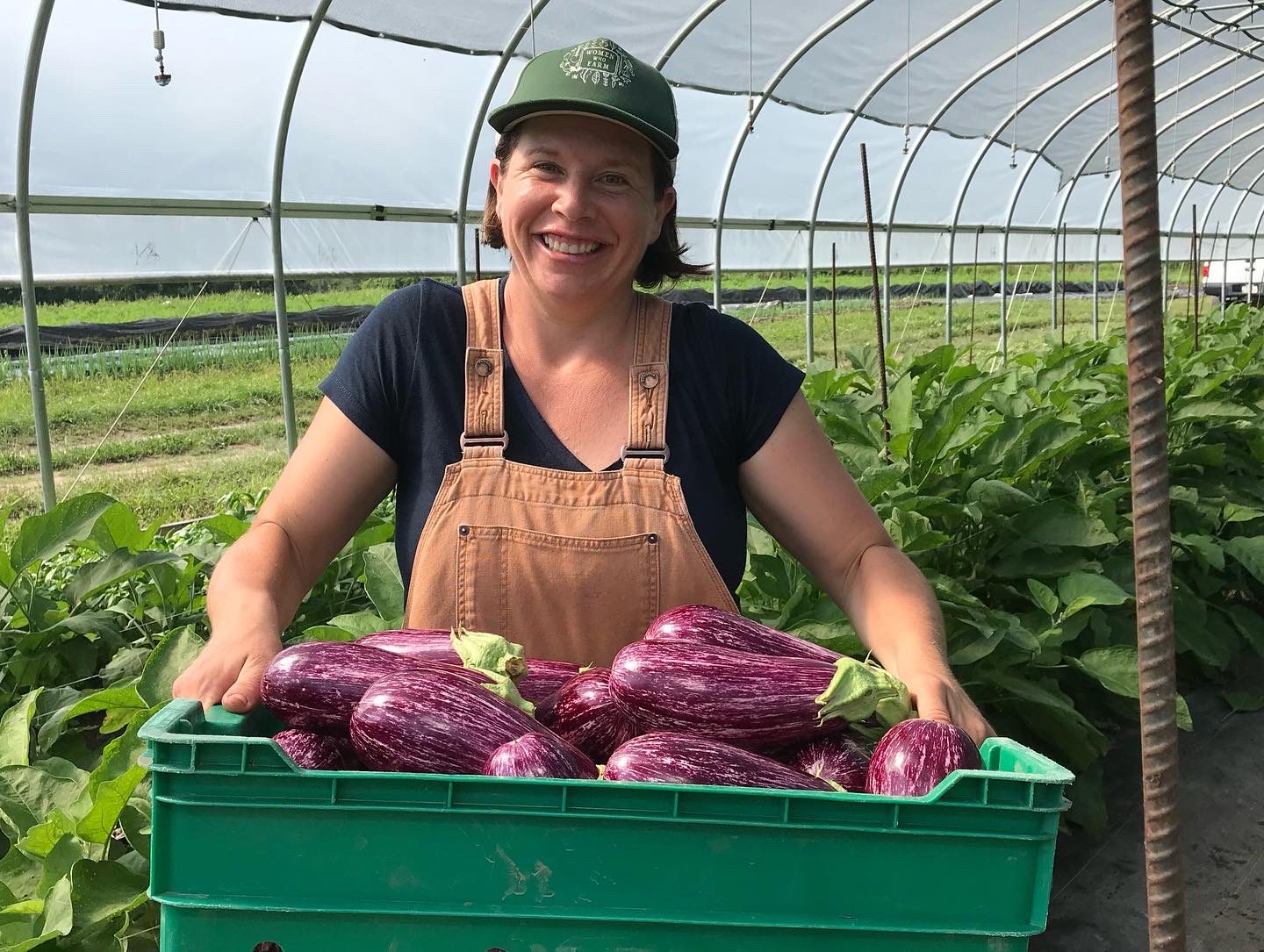For a few years now, my note in our annual impact report has been focused on our growth—and our growing pains. When I look back on 2024, suddenly, I’m struck by our momentum.
Our team’s increased capacity and dedicated work is having direct benefits for the farmers we serve. Offering farmers financial and technical support to fortify their farm’s climate resilience, helping them make a connection to a new resource or market, or even keeping a little more money in their pockets—farmers in our community are seeing the fruits of our labor.
Prioritizing marginalized and underserved farmers and farmworkers means no one gets left behind, and all farmers have the resources they need to keep farming.
I don’t mean to paint an overly rosy picture. Being primarily funded by federal grants during a change in administration and a potential government shutdown is challenging, to say the least. And of course, we always feel the weight of the work yet to be done.
But, we face these challenges with the knowledge and confidence that the Pasa community has each other’s backs. Whatever any one of us is facing, is carried by all of us, and we will be there for each other.
—Hannah Smith-Brubaker, Executive Director
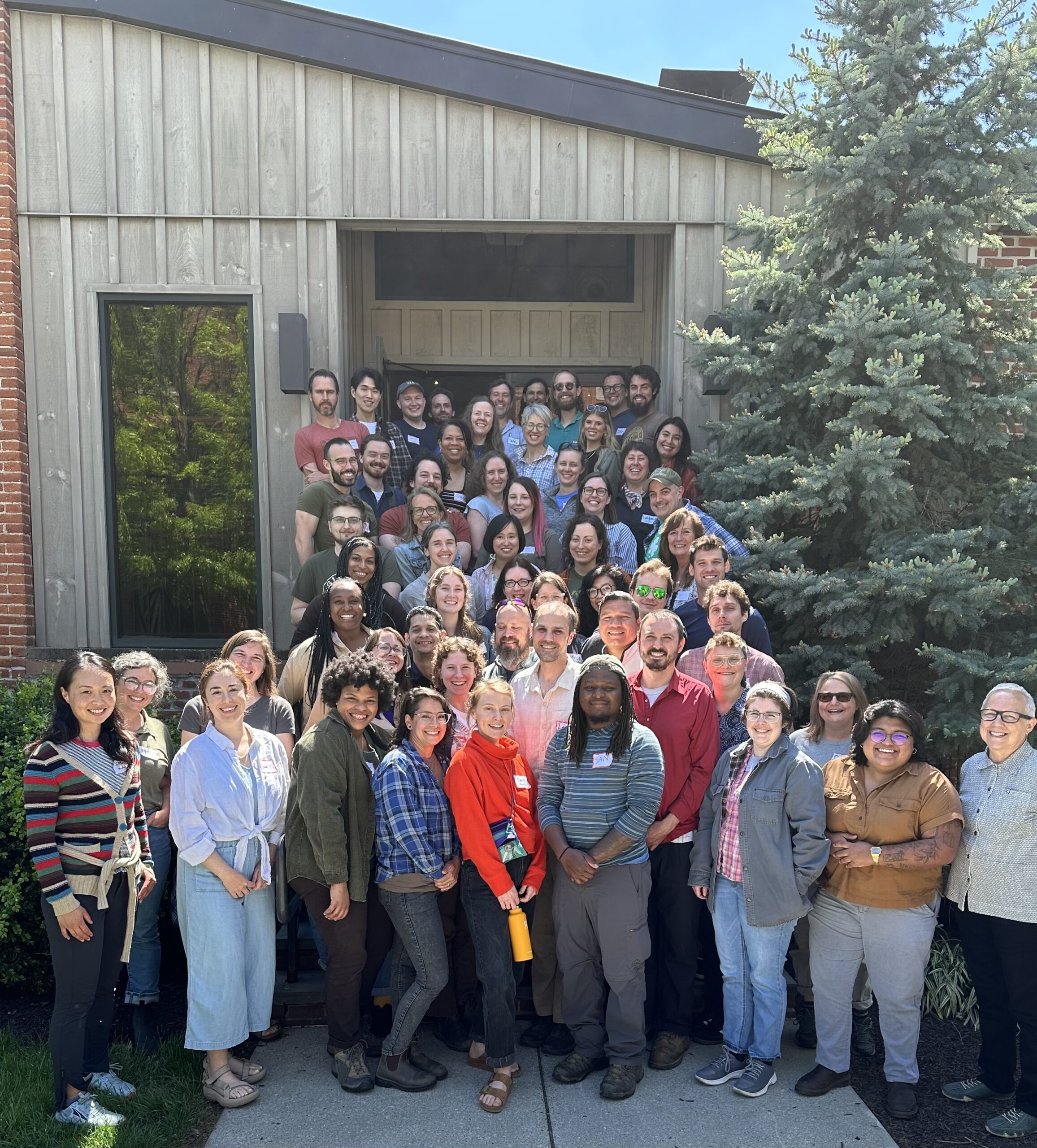
Pasa staff at our 2024 spring retreat in Lancaster, Pennsylvania
Scroll down to learn about what we’ve been up to, or click on the links below to navigate to different sections.
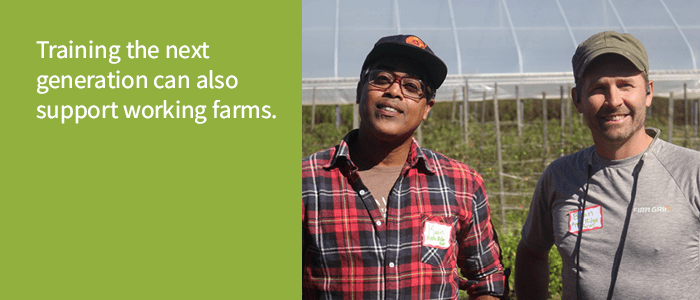
Click here to read what a mentor farmer has to say about our apprenticeship, and meet some recent graduates.
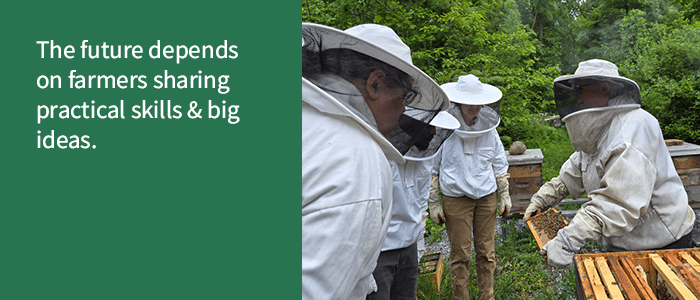
Click here to see why farmers love our annual Conference and year-round, on-farm events.

Click here to read about how we’re supporting farms in adapting to increasingly extreme weather and growing resilient solutions.

Click here to dig in to how our research helps farmers steward this precious resource.
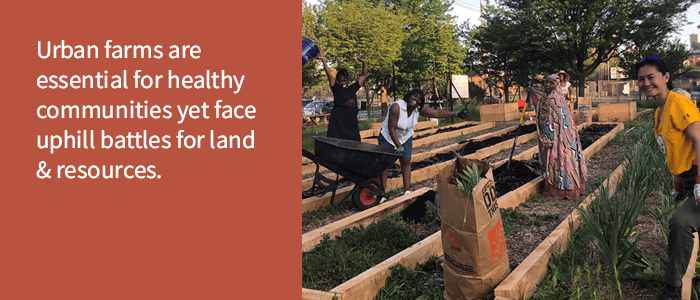
Click here to learn how we’re connecting urban farmers with resources and advocating for change.
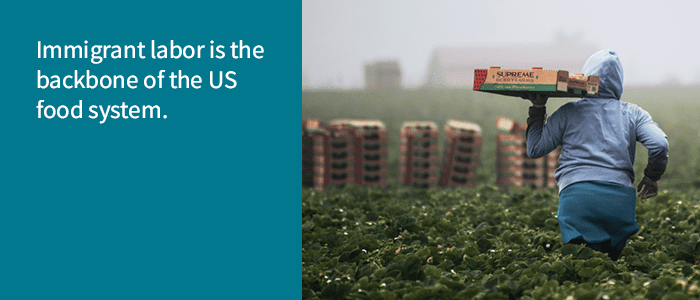
Click here to take look at the impact of our Farm and Food Workers Relief program and find out how you can join us the work ahead.

Click here to watch and read some our favorite stories from 2024.

Click here to see details about our sources of funding and how funds are spent.
Training the next generation can also support working farms.
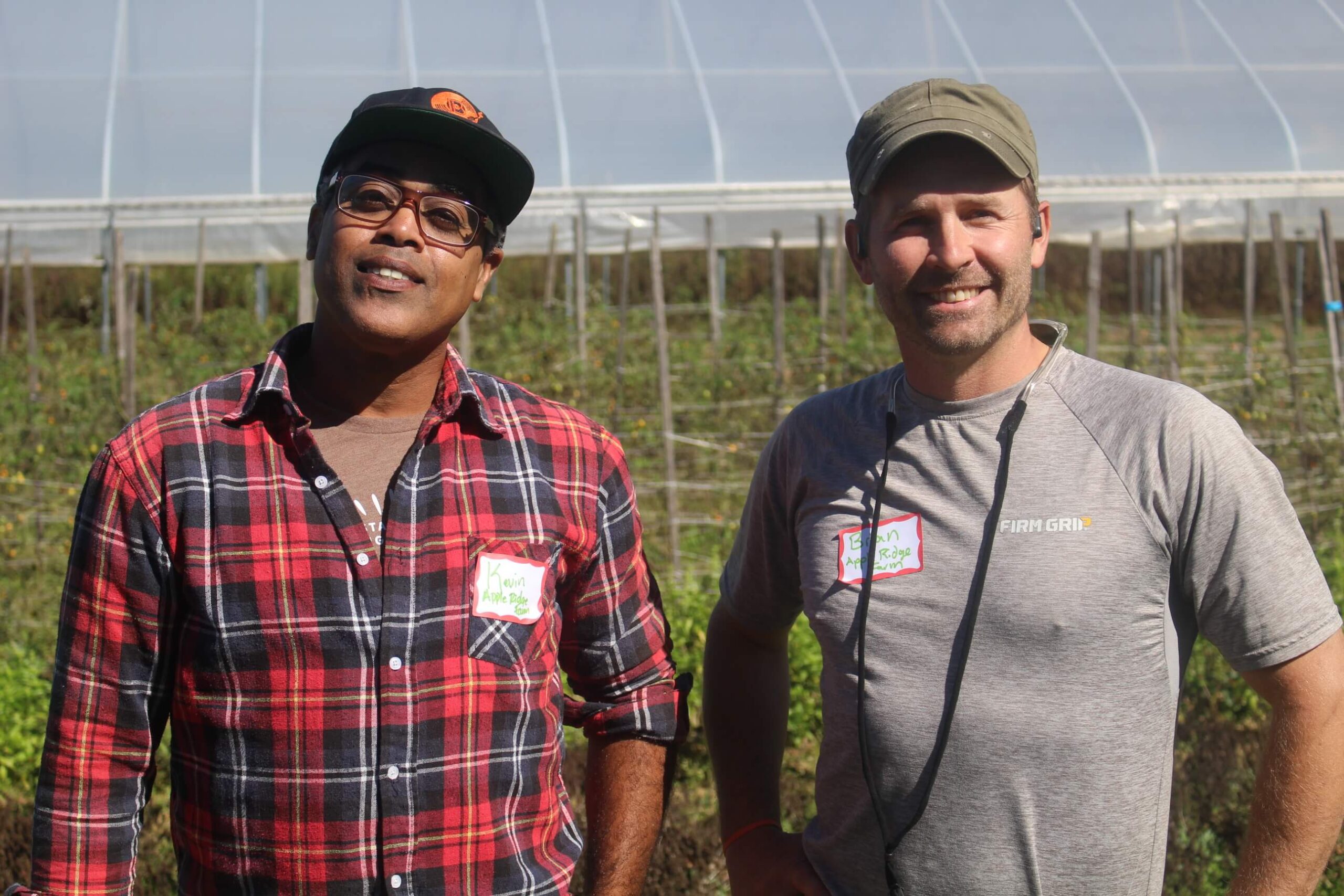
Our Diversified Vegetable Apprenticeship and Pre-Apprenticeship are registered with the Pennsylvania Department of Labor and Industry to ensure a guided pathway to careers in sustainable agriculture.
Diversified Vegetable Apprenticeship connects beginning farmers with established mentor farmers. By training on working farms, apprentices acquire the skills they need to manage or start their own vegetable farm, while mentor farmers gain a committed employee invested in farming as a career.
For those who don’t yet have the required season of experience to enter apprenticeship, our Pre-Apprenticeship offers introductory farm training experience through over a dozen training partners in the region.
The value of th Apprenticeship for beginning farmers is clear: for participants who learn on the job and gain the skills they need to manage a farm or start their own, the experience can be transformational.
But mentor farmers benefit from the program, as well.
“Because it’s a two-year program it allows us to train them the first year, and then have them come back the next year really as more of a leader.”
Mentor farmer Brian Bruno (pictured above on the right with apprentice Kevin Jackasal on the left) of Apple Ridge Farm shared, “Because it’s a two-year program, it allows us to train them the first year, and then have them come back the next year really as more of a leader.”
Brian said, “I tell a lot of my farmer friends that the Pasa apprenticeship is a no-brainer. It gives us the support to recruit and maintain good relationships with apprentices… Just being part of Pasa is huge.”
Interested in how hosting an apprentice can support your operation? Learn about becoming a mentor farmer.
Graduates from our Diversified Vegetable Apprenticeship and Pre-Apprenticeship in 2024
Training partners
Mentor farms
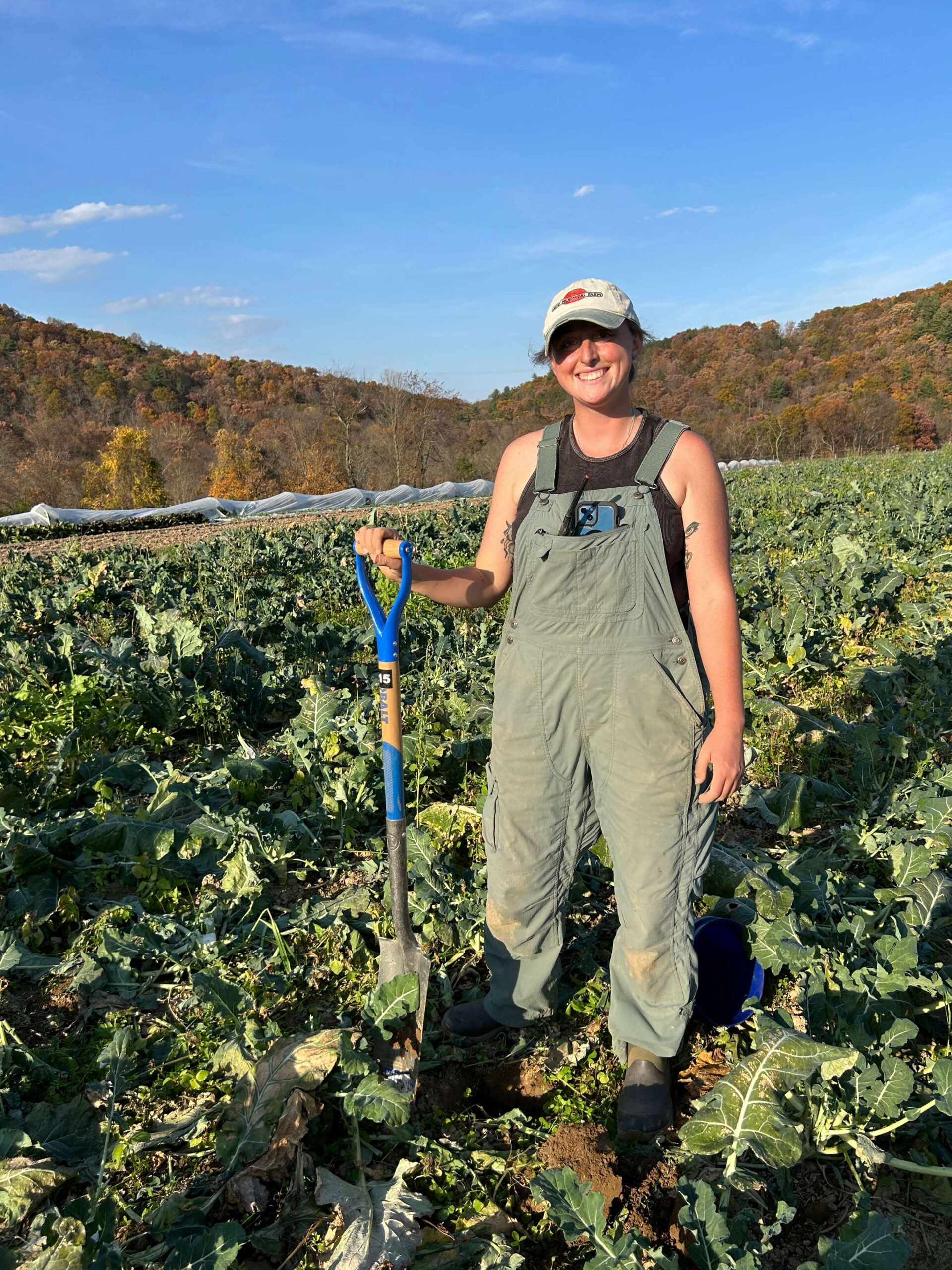
Carlie Antes completed Diversified Vegetable Apprenticeship with New Morning Farm.

David Thompson completed Diversified Vegetable Apprenticeship at Plowshare Farms and Down to Earth Harvest.

Liza deProphetis completed Diversified Vegetable Apprenticeship at Nook & Cranny Farm.
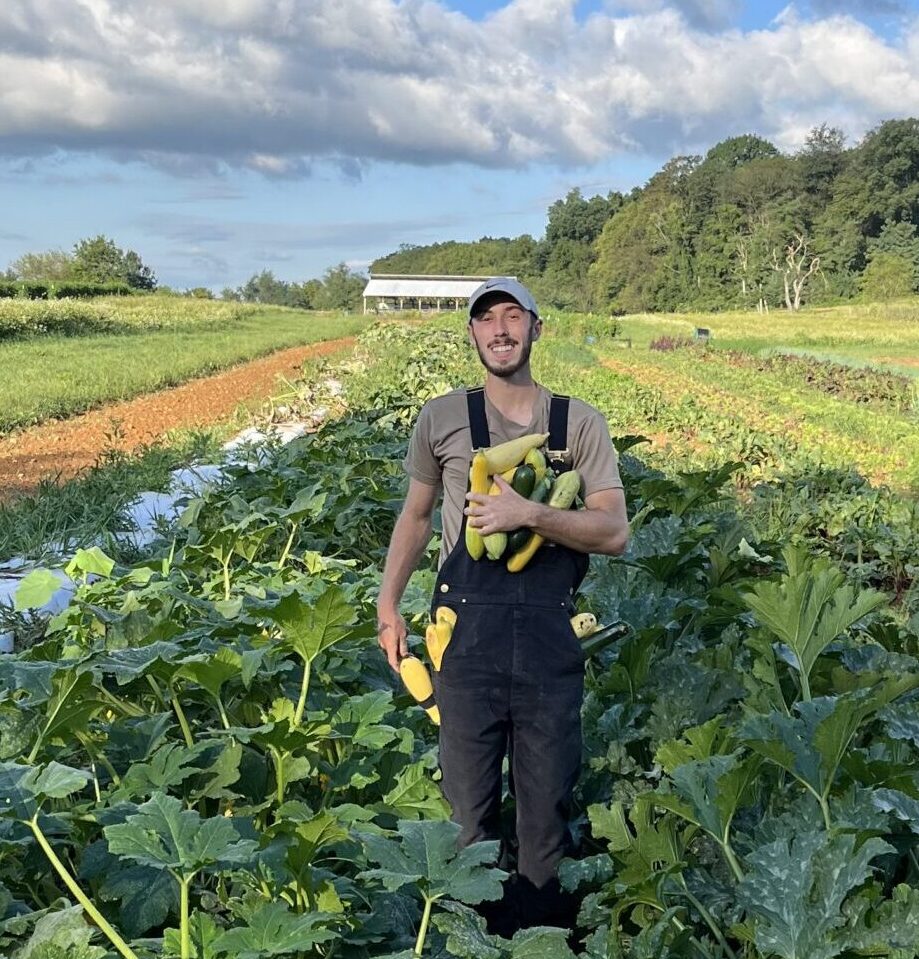
Alex Davies completed Diversified Vegetable Pre-Apprenticeship at Dickinson College Farm.
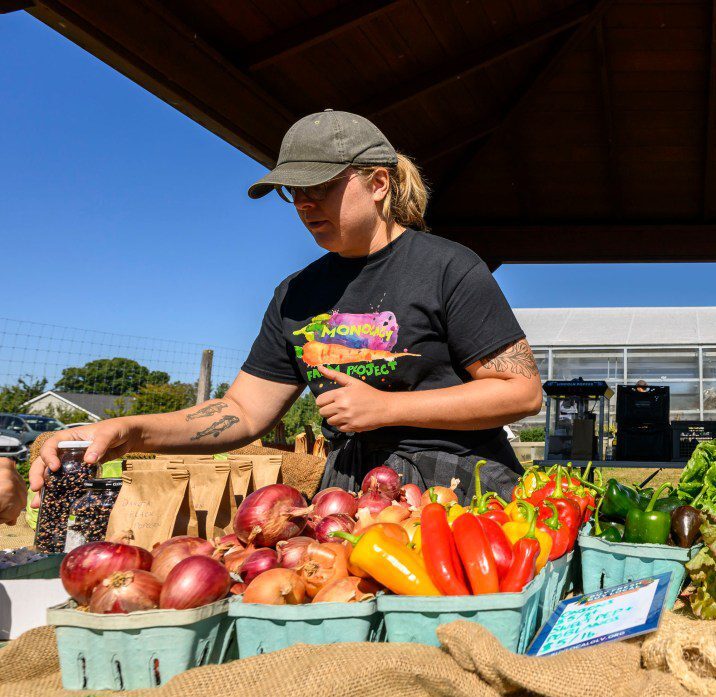
Shelby Carr completed Diversified Vegetable Pre-Apprenticeship at Monacacy Farm Project.

Ethan Kramer completed Diversified Vegetable Pre-Apprenticeship at The LEAF Project.
The future depends on farmers sharing practical skills & big ideas.
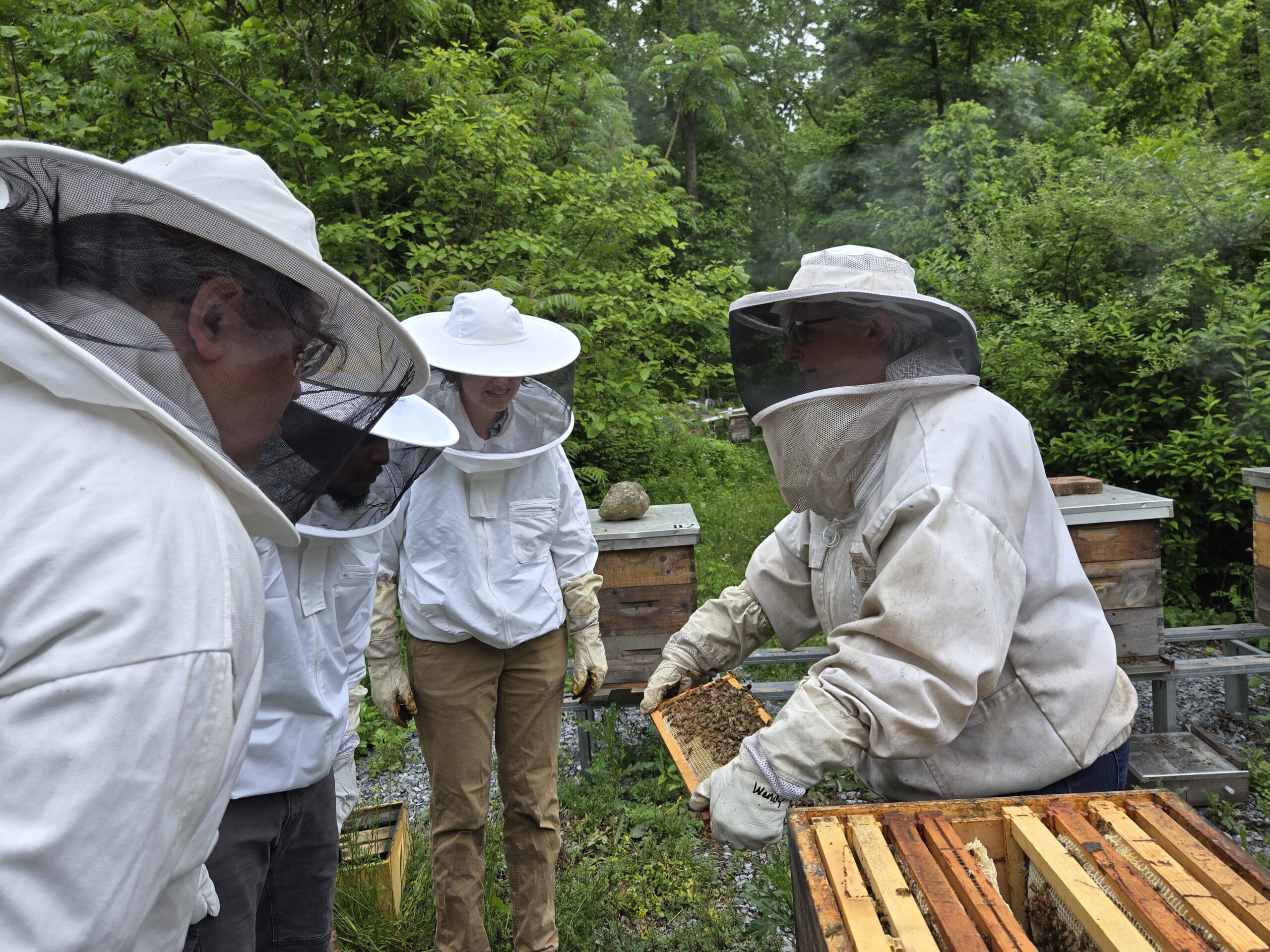
Our annual Conference and year-round events are places where farmers are the experts, sharing their knowledge in community.
From the basics of beekeeping to the nuances of direct market channels—our events offer entry points for beginners and advanced topics for seasoned professionals.
An attendee at our two-day Cut Flower Intensive shared the importance of hearing from fellow growers, “Truly, there was so much wonderful information throughout both days. Even though I did know that there is more than one way to the same task, it was nice to hear that two very successful farmers do some things differently.”
“First and foremost, I love connecting with other farmers… I was familiar with the farms presenting but didn’t know a lot of the details of their stories and origins,” said an attendee at our 2024 Advanced Growers Intensive. “I think what I most took away from this event is the importance of staying adaptable as a farm by continuing to open new doors, relationships, markets.”
"Truly, there was so much wonderful information throughout both days. Even though I did know that there is more than one way to the same task, it was nice to hear that two very successful farmers do some things differently."
In 2024 we held more than 65 on-farm and virtual events.
More than 3,000 combined attendees joined us at our 2024 Sustainable Agriculture Conference (1,500 attendees) and at our year-round events (1,600 attendees).
We gave out more than $233,000 in Conference scholarships.
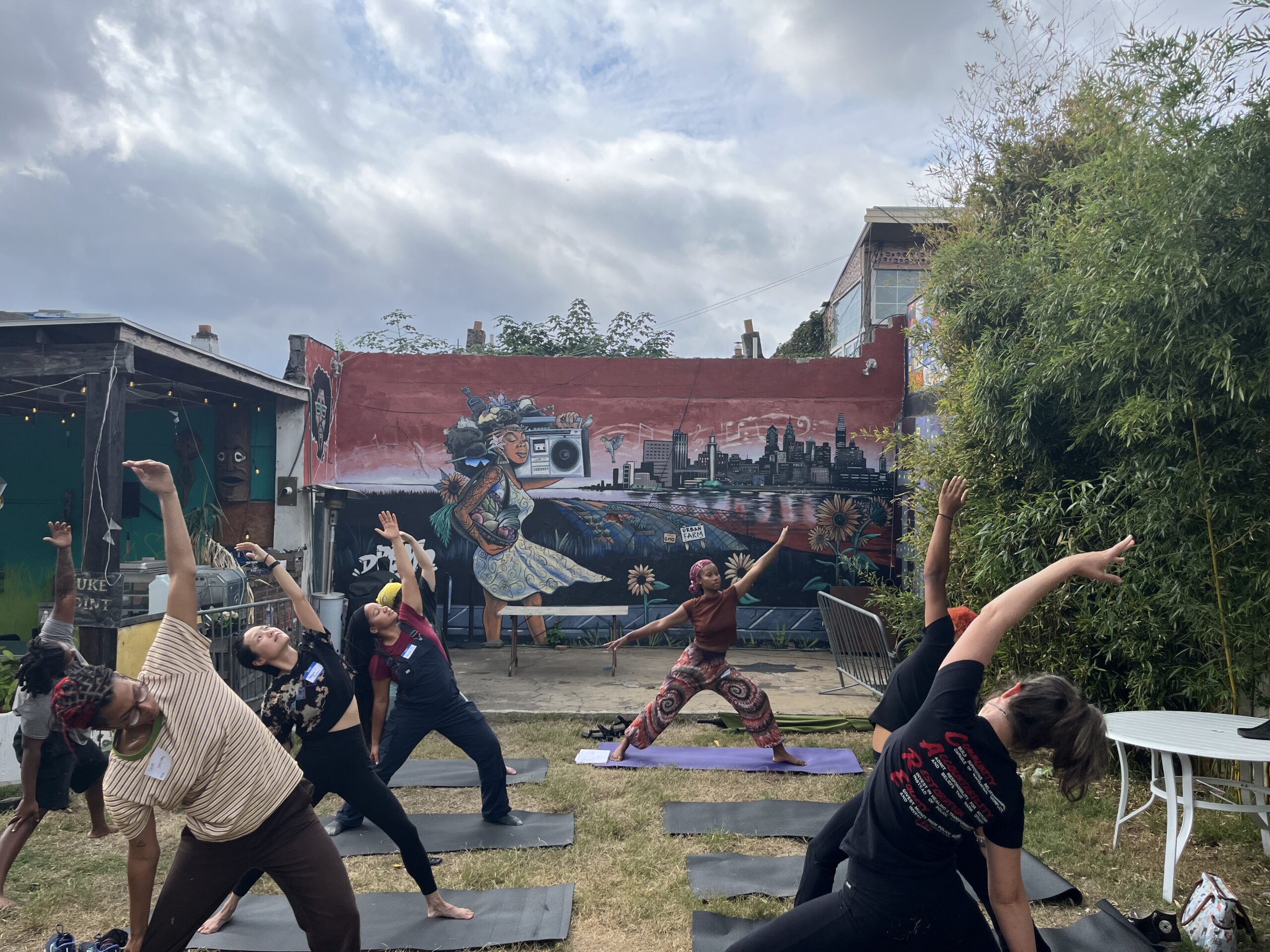
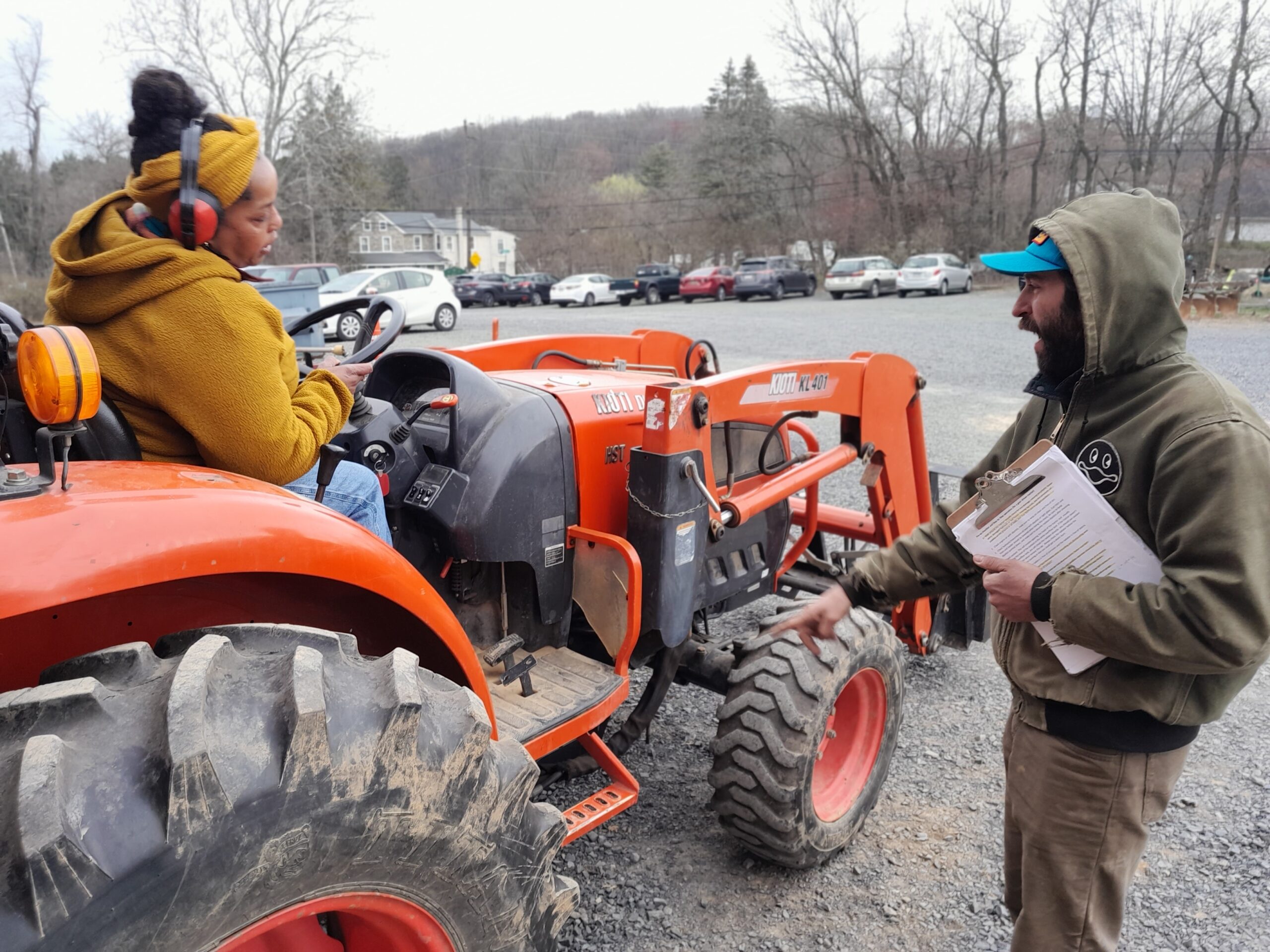
Photo credit: Katy Hunter, The Seed Farm


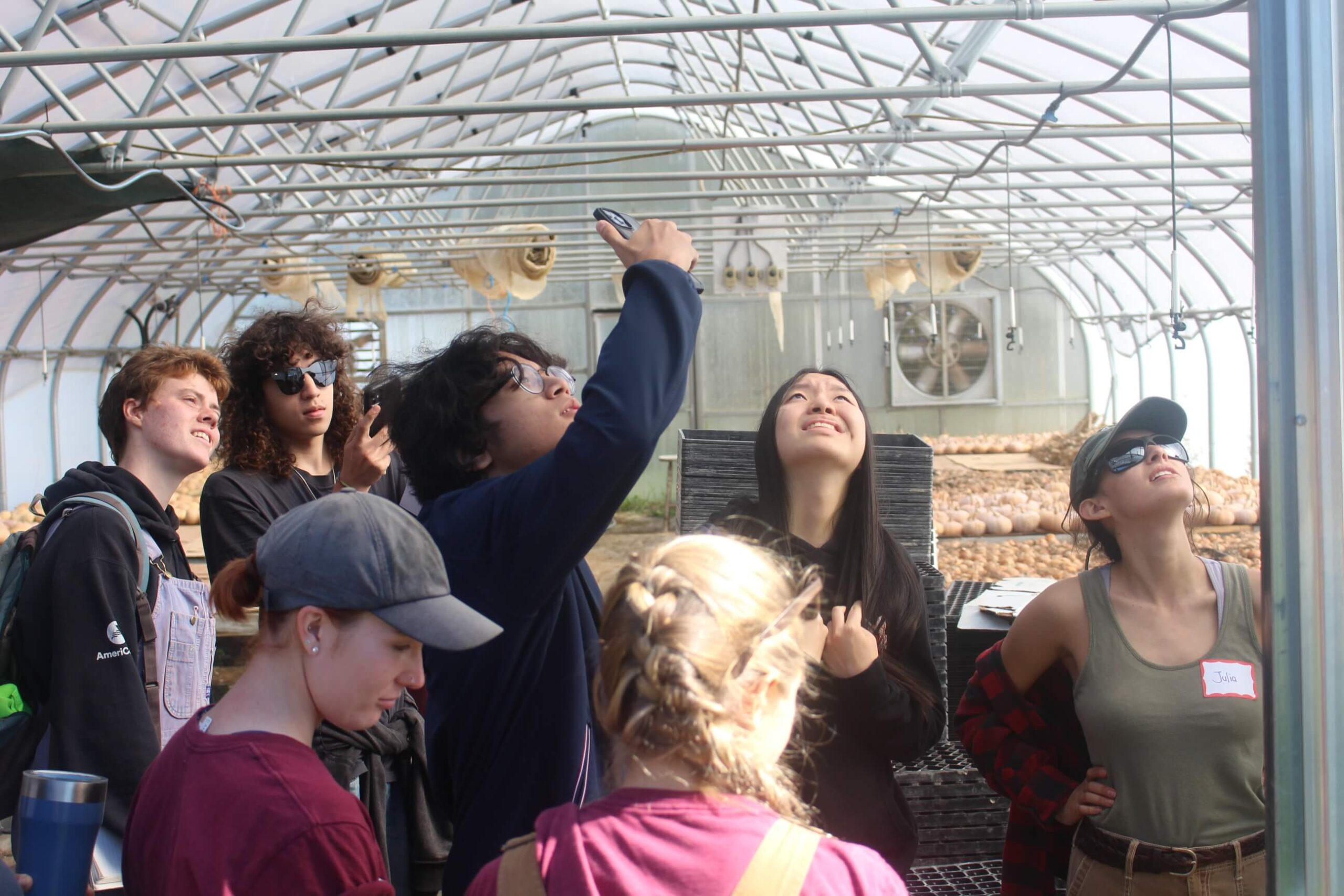
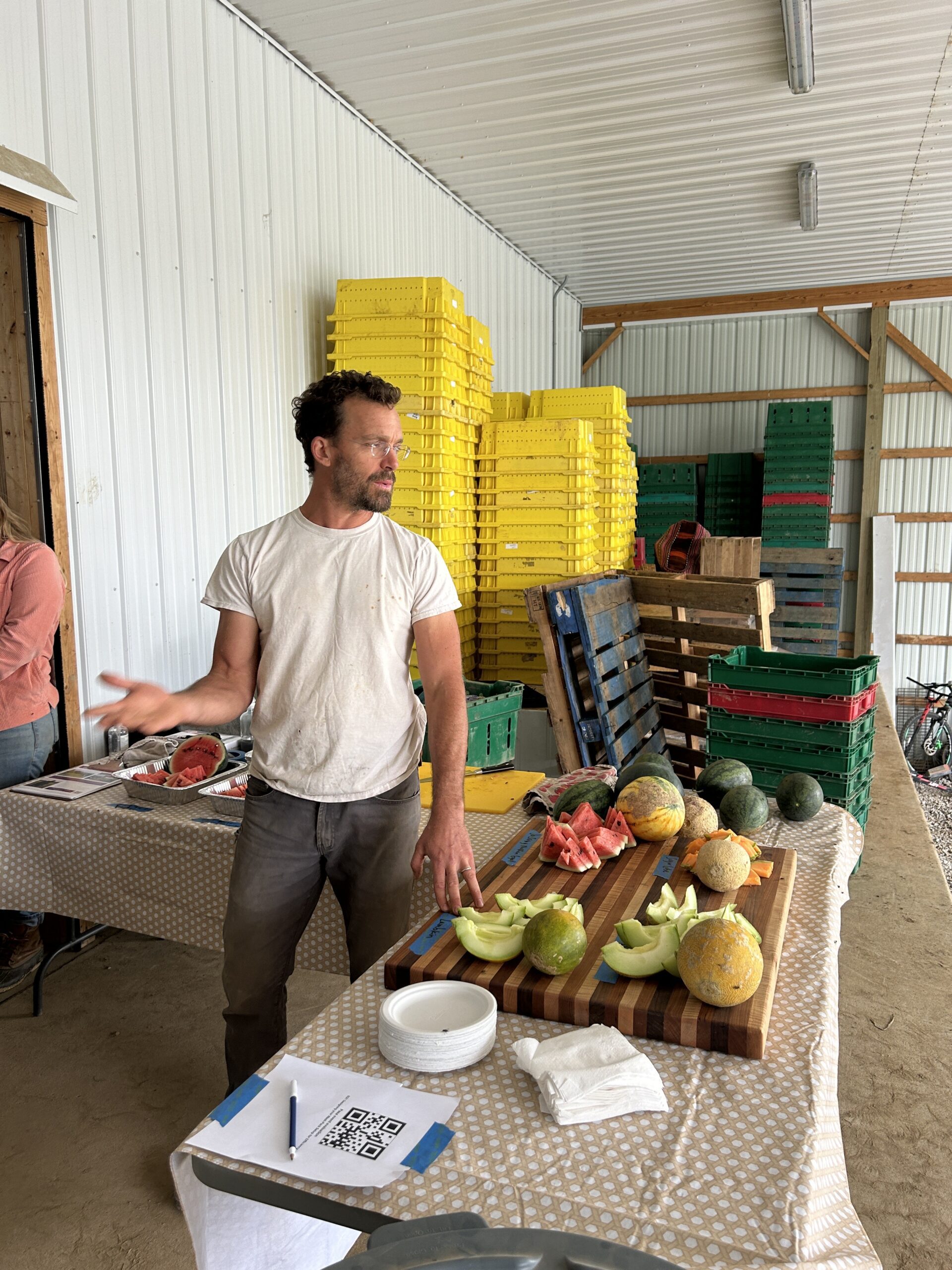
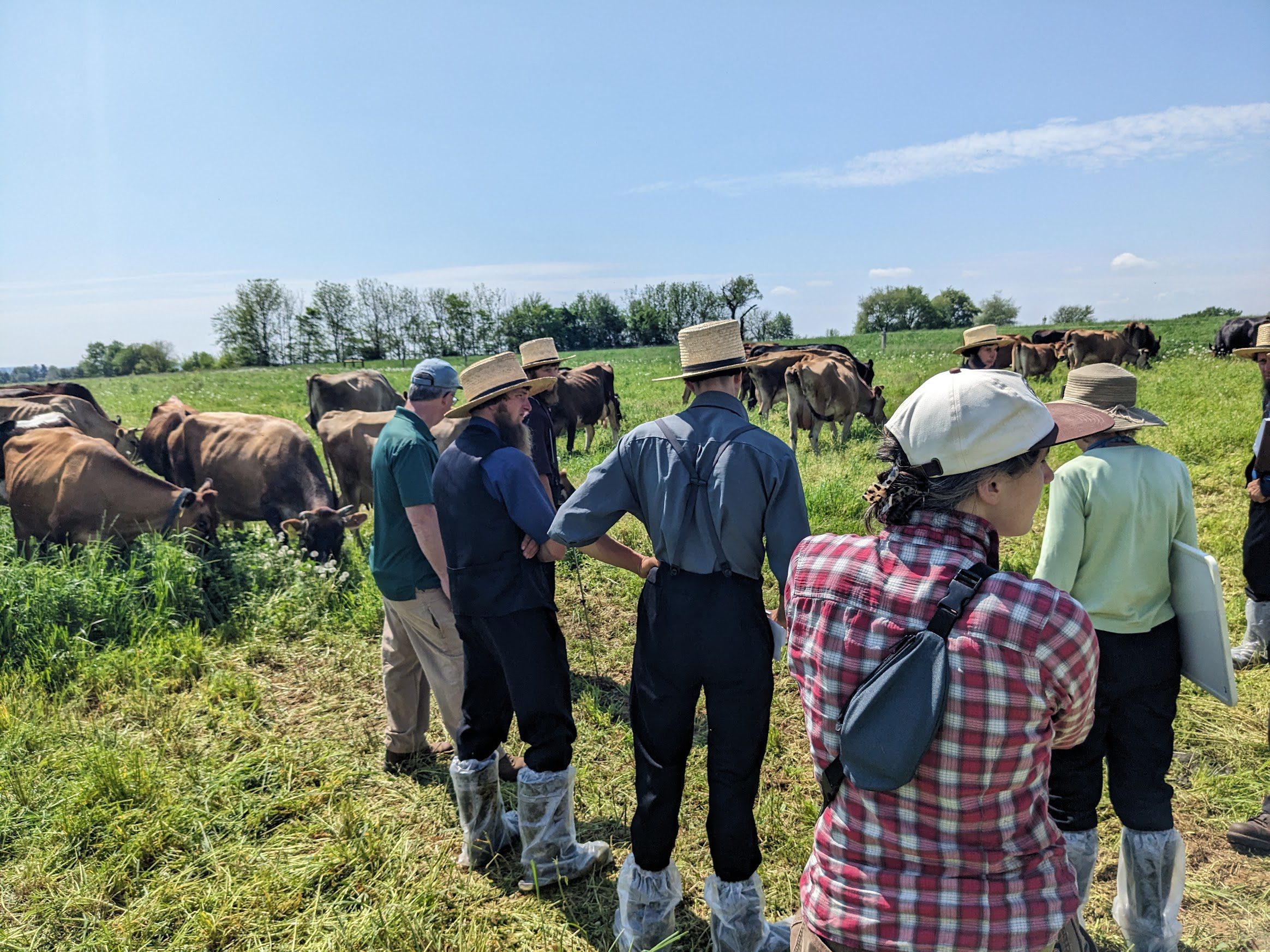
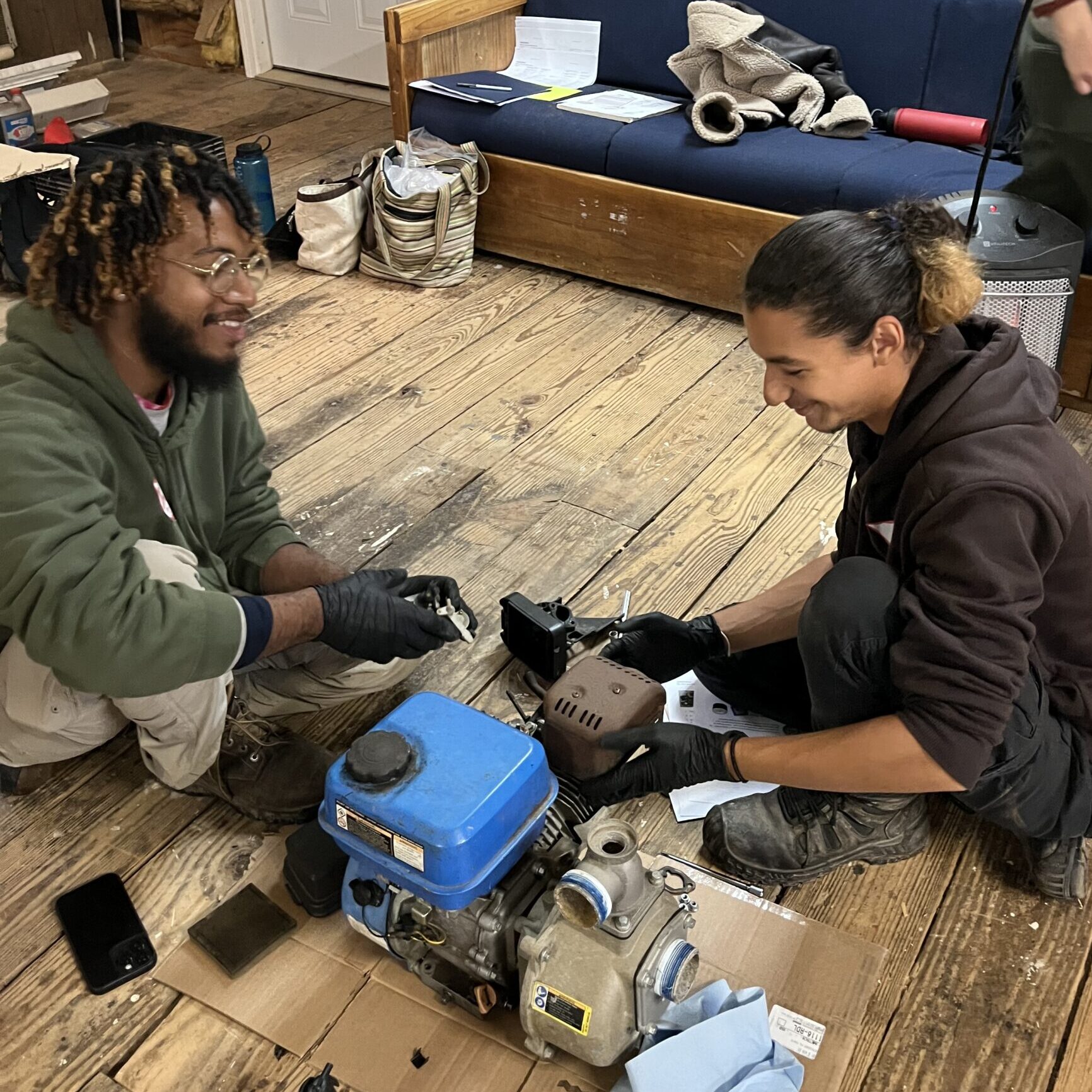
Farming in a changing climate is one of the toughest jobs on the planet.
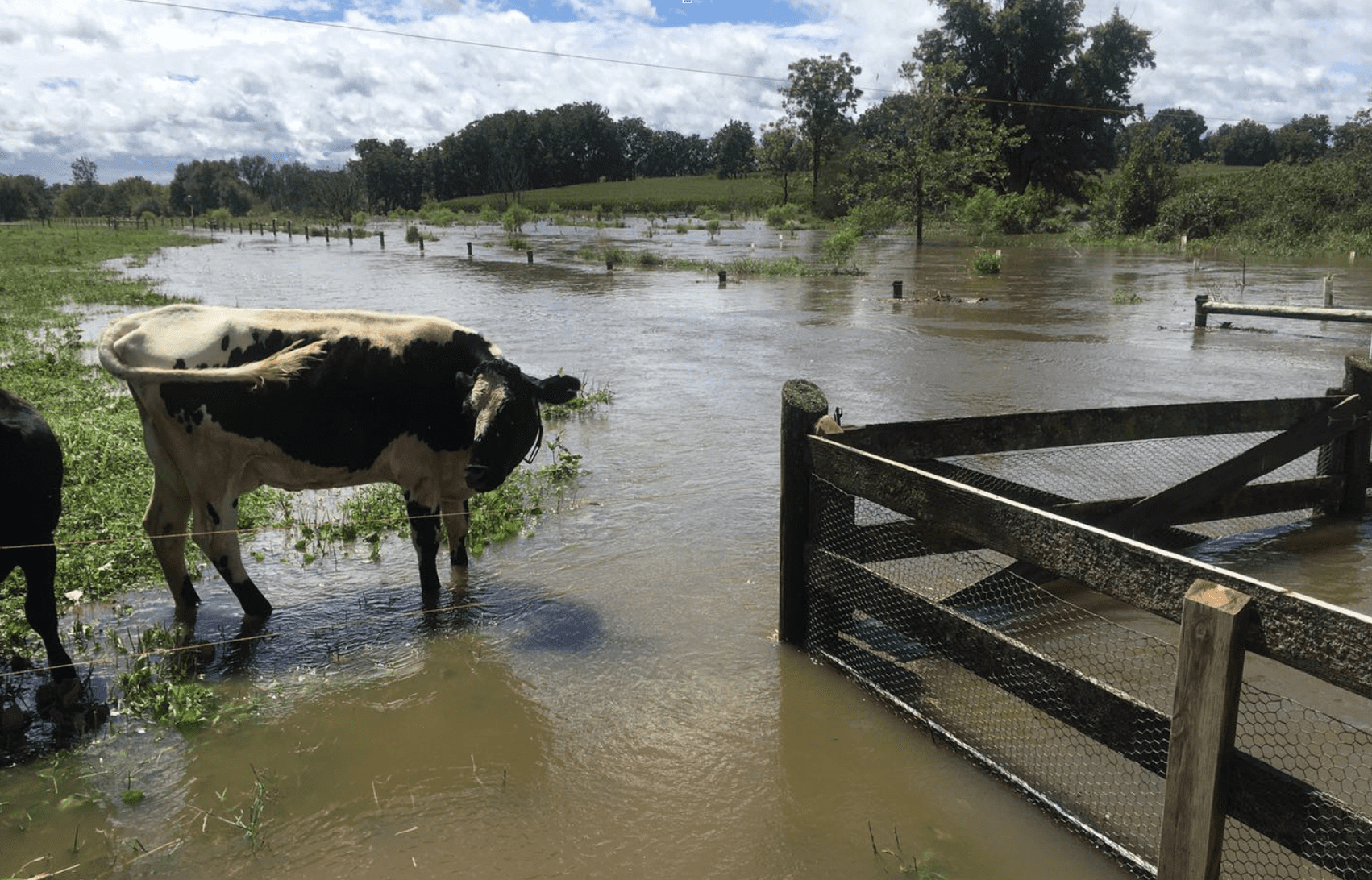
Deanne Boyer raises grass-fed beef and pastured pork on Willow Run Farmstead in Reading, Pennsylvania, at the seat of Berks County. The farm has been in her family for at least three generations and has pastures that run alongside two different creeks on the property, much of which is in the 100-year floodplain.
While the farm is no stranger to flooding, on July 9, 2023, they were inundated with 10 inches of rain in a 24-hour period—the most Deanne had ever seen. When she checked with older family members who still remember Hurricane Agnes coming through the region, they confirmed that this storm was more intense, with water levels tipping the five-foot mark on their fences.
“We don’t get casual rains anymore. We just get downpours or nothing.”
In the face of increasingly extreme weather events, Willow Run is investing in conservation practices, adapting how they use their land, and bracing for the weather to get worse.
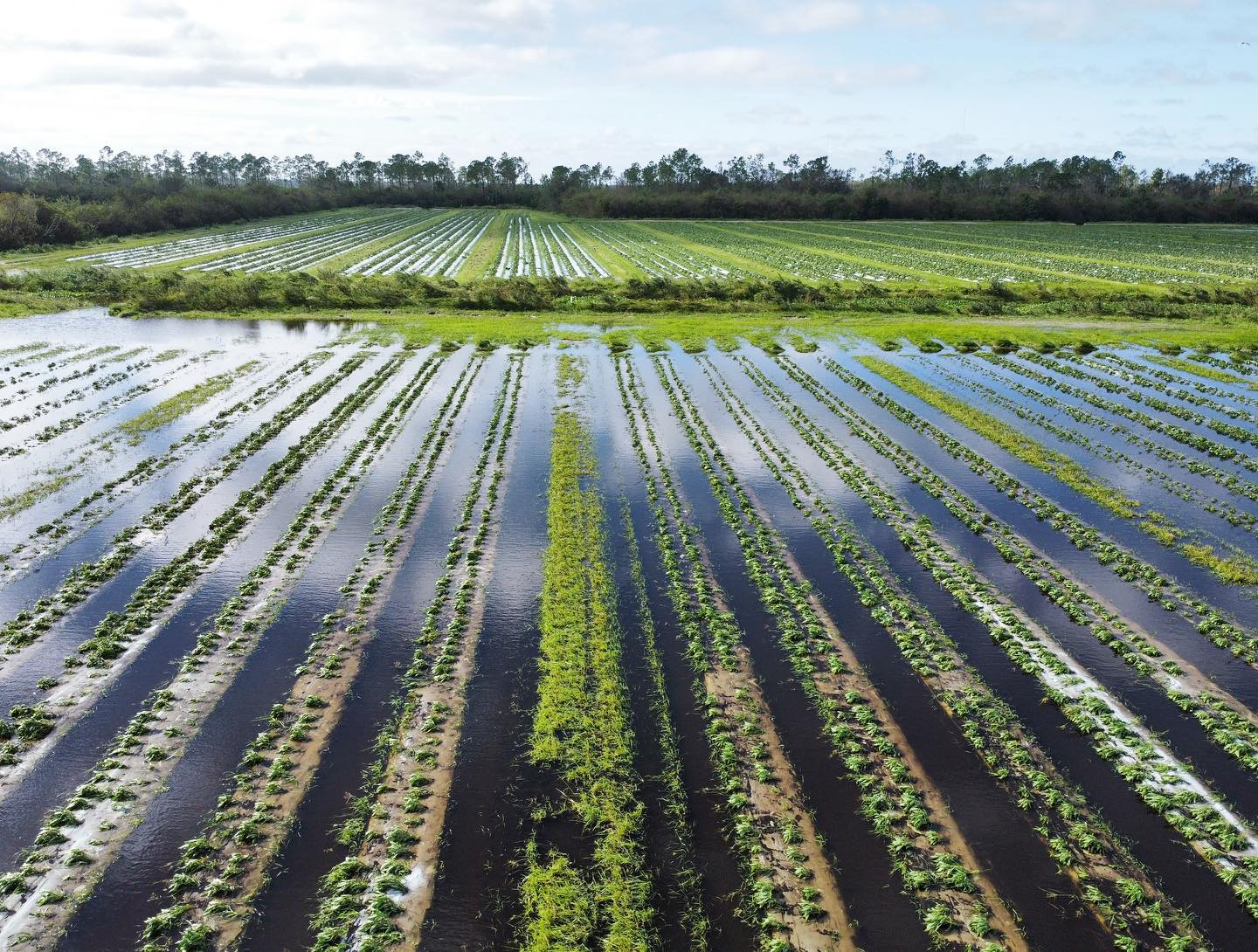
In part two of this webinar series, we discuss how climate change will alter the precipitation patterns in our region.
Watch the recording
In part one of this two-part webinar series, we discuss basic concepts of climate systems and explore how temperature dynamics are impacting farms.
Watch the recording
This report summarizes recent trends in national, state, and regional climate-related impacts and shares a set of recommendations for how farms can play a greater role in reducing climate-related losses and damages related to flooding.
Read the reportWe're investing in farmers growing long-term solutions.
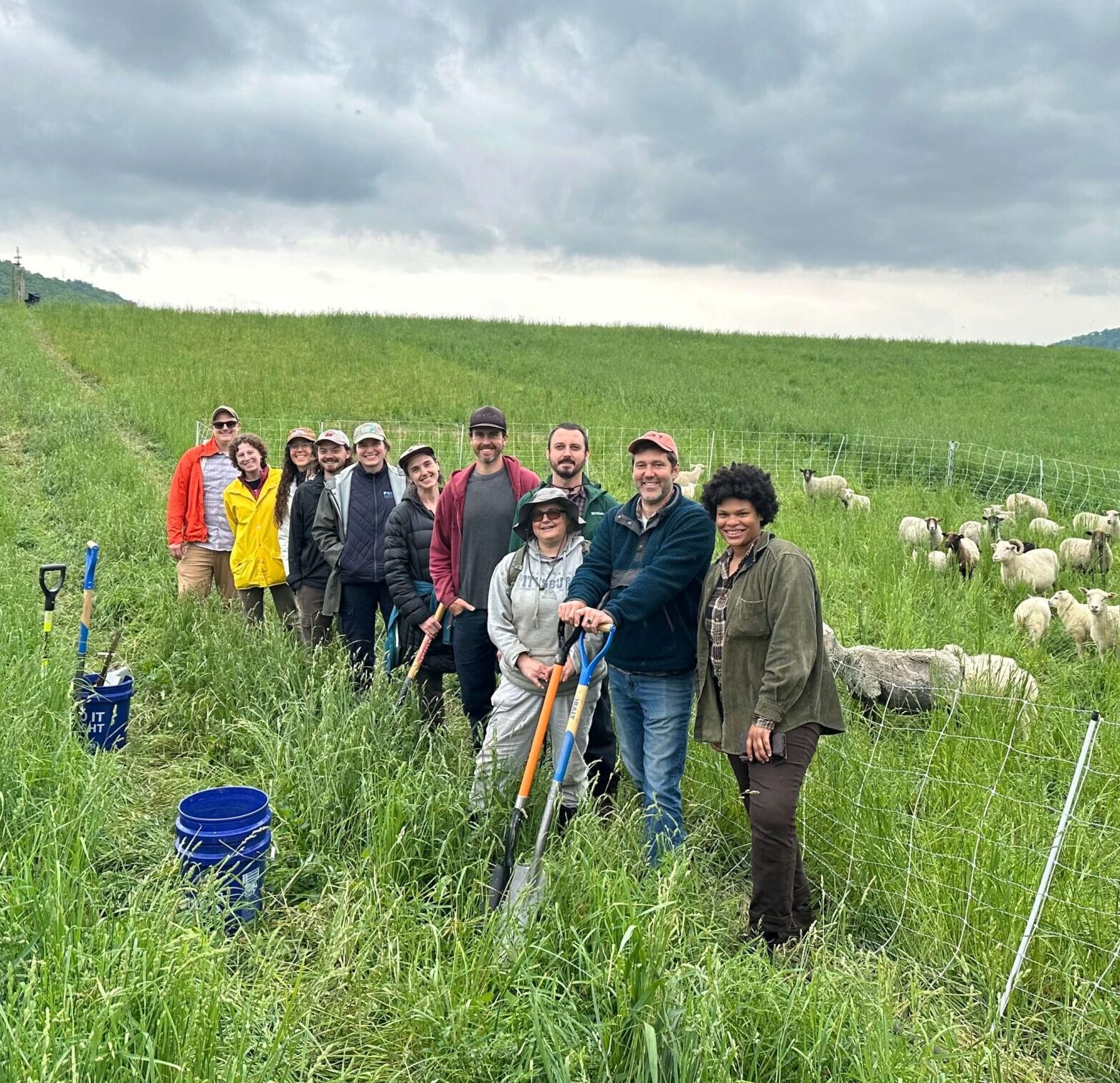
In collaboration with our partners, we’re working to help up to 2,000 farmers adopt climate-smart practices from Maine to South Carolina.
A team of more than 25 technical assistance providers is dedicated to working closely with farmers to understand their needs and develop holistic plans to steward the environment and support their success.
These friendly folks with practical farming experience are also here to help farmers navigate the application, implementation, payment, and reporting processes.
Interested in how climate-smart practices could support your operation? Learn more & apply.
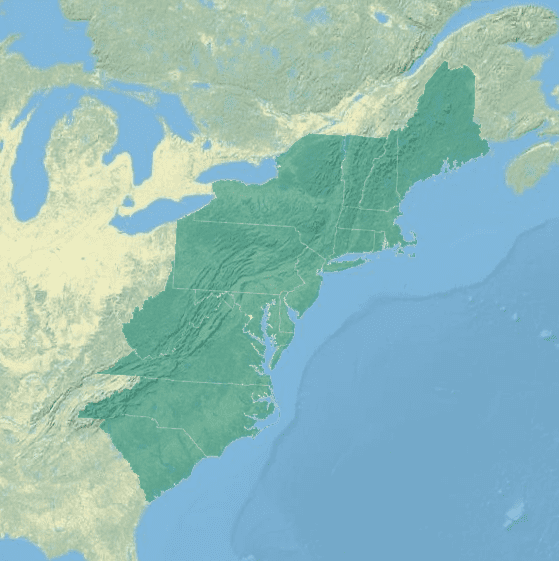
Farmers enrolled
States represented in applications, with enrolled farmers across 11 states
Average payment to farmers
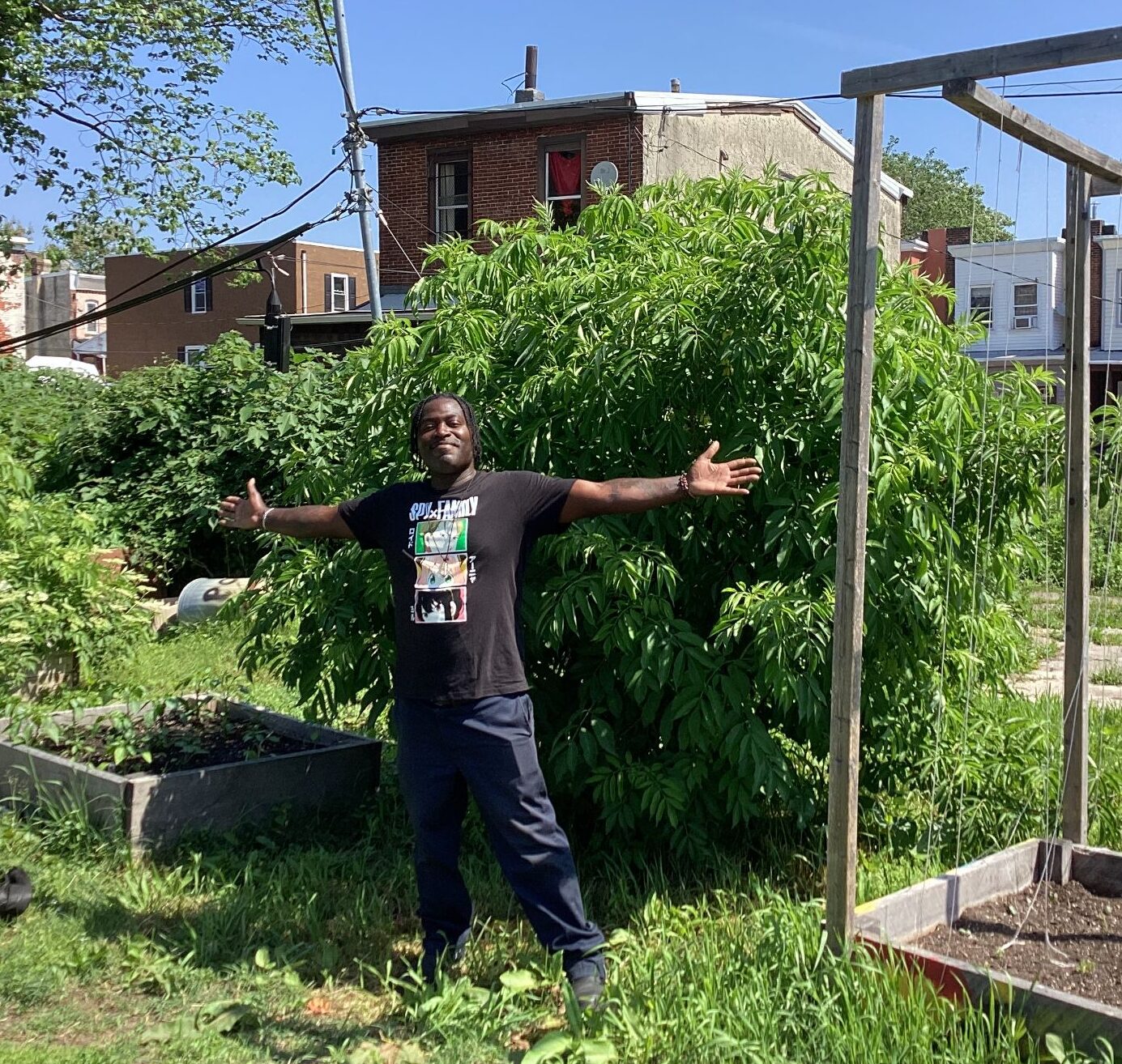
Farmer Jovian Patterson of Original American Community Farm grows food for his neighbors on less than an acre in Southwest Philadelphia.
He also leads gardening and cooking workshops on the farm. With a strong interest in organic farming and conservation, Jovian is focusing on practices like mulching to start, but also eager to implement a nutrient management plan and to learn more about using cover crops.

Farmer Wesson Rodamsky grows annual and perennial dye plants on Berry Mountain Color Farm in Dauphin County Pennsylvania.
Their climate-smart plan includes planting trees as windbreaks for increased protection from extreme weather and incorporating prescribed grazing of livestock for fiber production to diversify their business and establish perennial pasture.
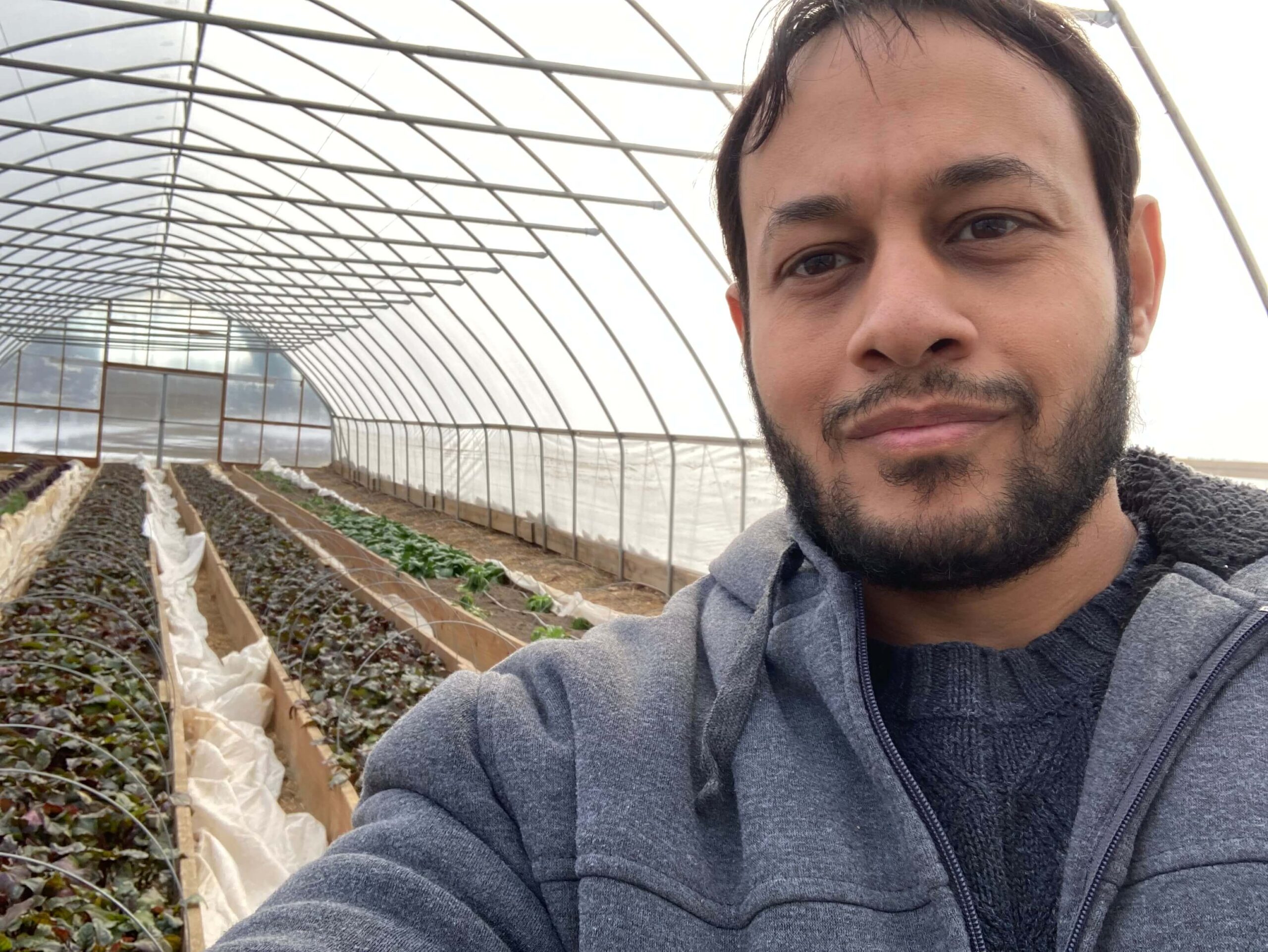
Farmer Sam Farage manages York Fresh Food Farms in York County, Pennsylvania. The nonprofit farm is committed to improving access to affordable, healthy, fresh food for everyone in our community, especially for families living in poverty.
Sam is implementing no-till, mulching, and cover crops in the farm’s four greenhouses, and planning to work with his technical assistance provider to develop a nutrient management plan in the coming seasons.
As an organization committed to growing justice and working against oppression, Pasa’s Climate-Smart team adheres to federal guidelines for nondiscrimination in our review processes, while also working to remove barriers to access and ensure that our outreach efforts reach producers who are often left behind.
The impacts of the foundational injustices in our food system persist to this day and are evident in who owns the majority of farmland and who receives the majority of agricultural funding.
At Pasa, we are committed to supporting and building trust with farmers of color and other underserved producers, including beginning farmers; military veterans; farmers, whose farms or families have limited income; and farmers , who have been subject to racial or ethnic prejudice because of their identity. We are also actively working to reach folks who have been and continue to be marginalized in agriculture, including women, LGBTQ+ people, disabled people, immigrants, and those with language and technology barriers.
Working with our partners who already have long-standing relationships with marginalized producers is an essential part of this approach.
Because equitable engagement focuses on community-driven solutions and reducing barriers, equitable engagement benefits all of us, even those who have not been marginalized.
Equitable engagement means that no farmer is alone in this. Our team is here to support them every step of the way: from completing the application to acquiring a farm number, to navigating the paperwork, and implementing the projects that will make their farms stronger and support a more resilient food system.
Healthy soil supports life as we know it.
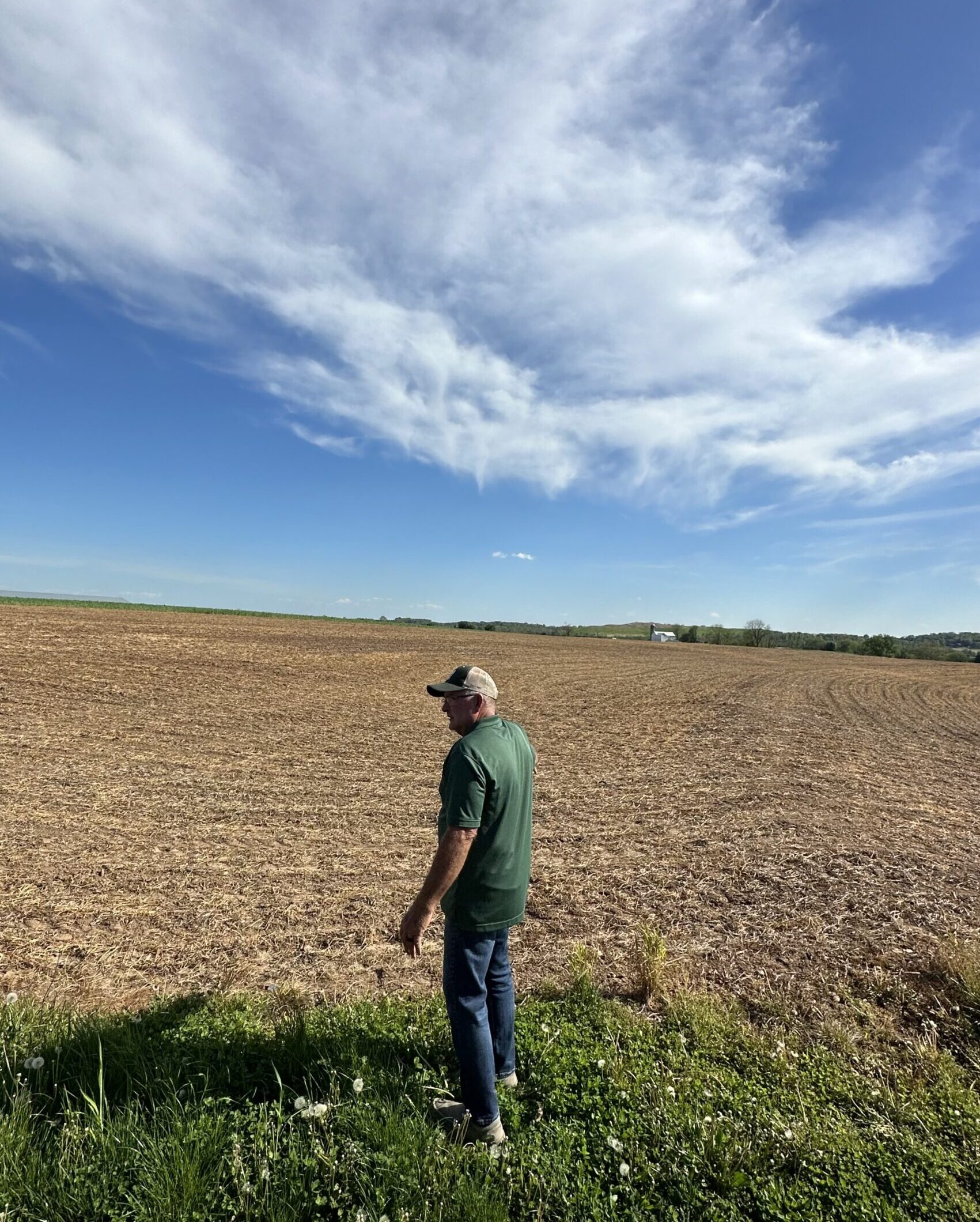
Some might not expect a 500-acre farm growing corn, wheat, and soy along with large organic poultry and hog enterprises to be concerned with sustainability.
But a look at the large solar array lining the driveway could be the first indication that Hershey Farms is not entirely “conventional.” And when you learn that farmer Jim Hershey is president of the Pennsylvania No-Till Alliance and recently installed a 3,000 tree riparian buffer, you’d have no question that Hershey Farms is a Pasa farm.
Jim is well aware that Lancaster County is both the most fertile and productive farmland in Pennsylvania, and the county believed to be the top contributor of agricultural runoff to the Chesapeake Bay.
That’s why he’s committed to being part of the solution.
“We’re doing everything we can to utilize cover crops and not use any herbicide. In my time here, we’ve reduced our herbicide use by 50%. We’ve been no-till for 38 years, planting cover crops for 22 years, and finding ways to practice planting green for 10.”
“We’re doing everything we can to utilize cover crops and not use any herbicide. In my time here, we’ve reduced our herbicide use by 50%. We’ve been no-till for 38 years, planting cover crops for 22 years, and finding ways to practice planting green for 10.”
Collaborating in Pasa’s Soil Health Benchmark Study helps Jim track progress from year to year and see how the practices show up in their soil.
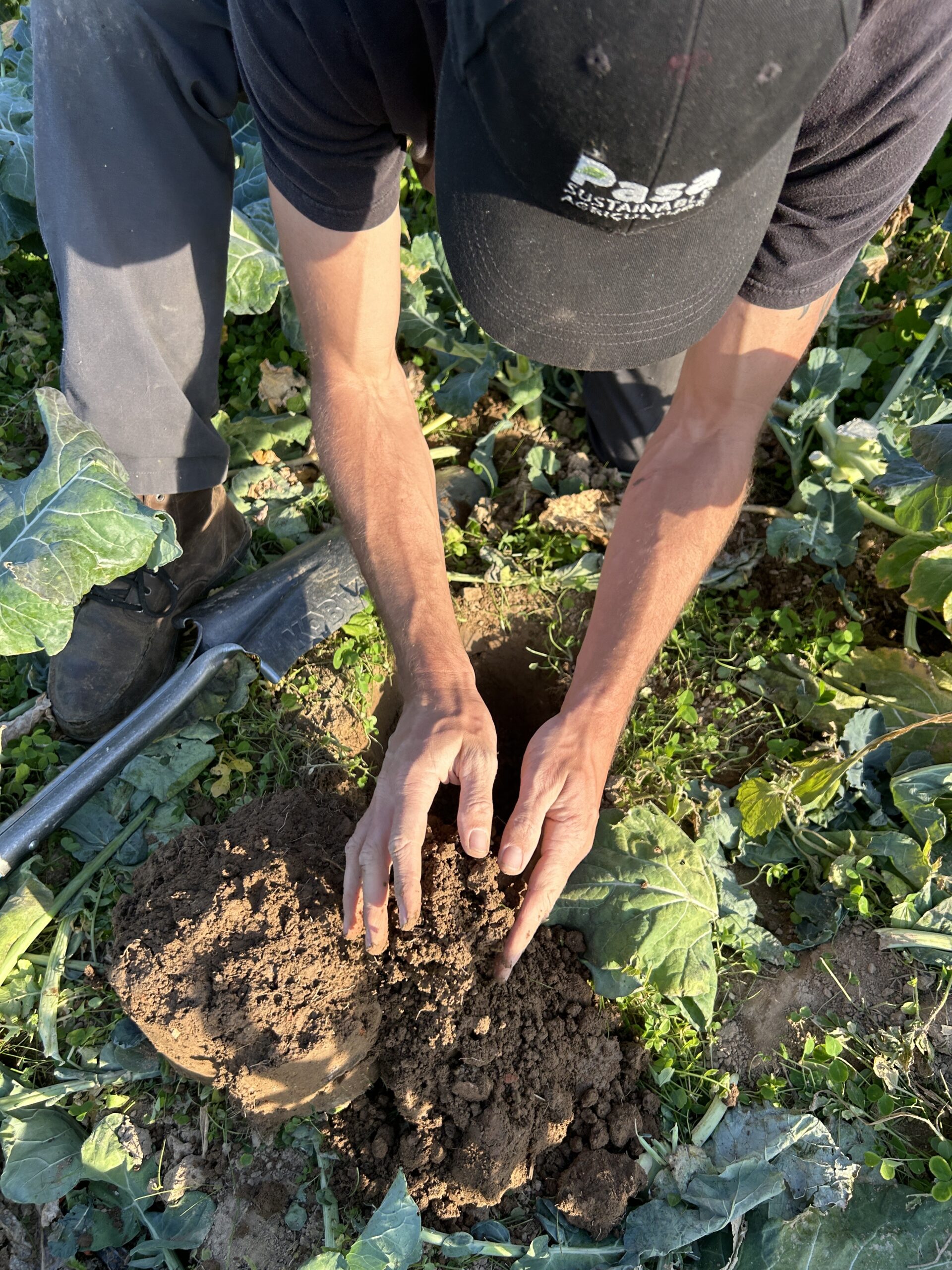
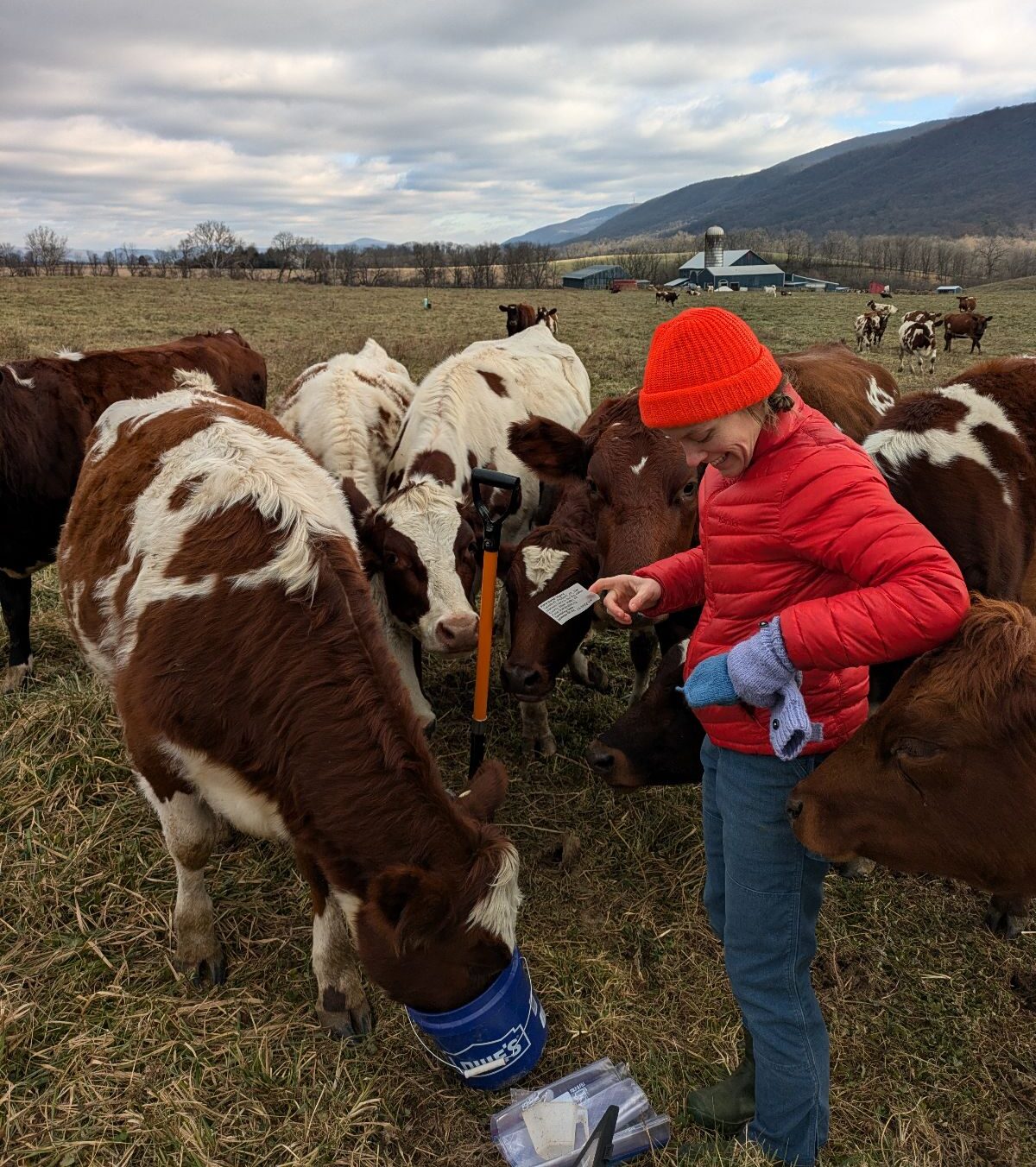
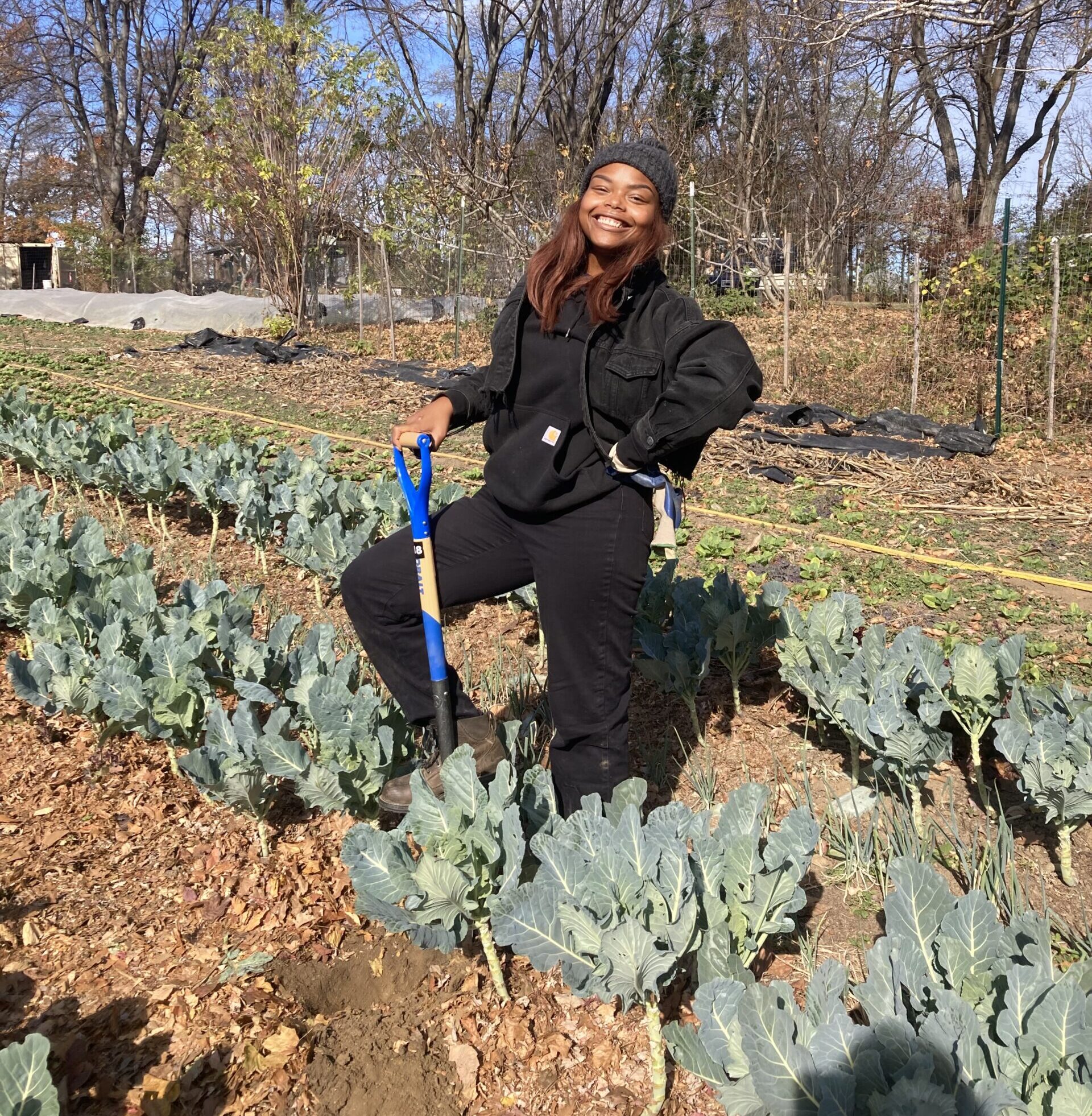
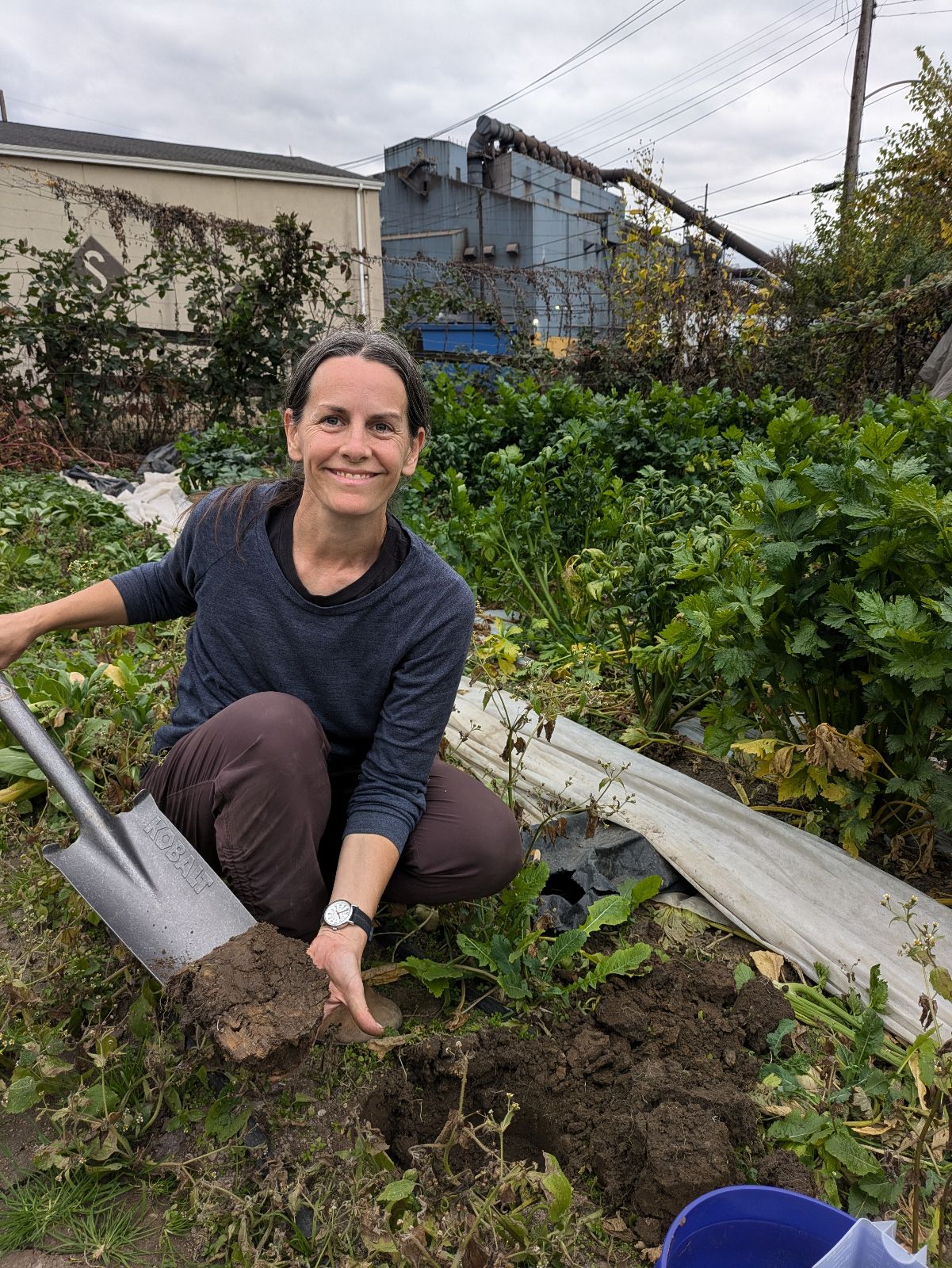
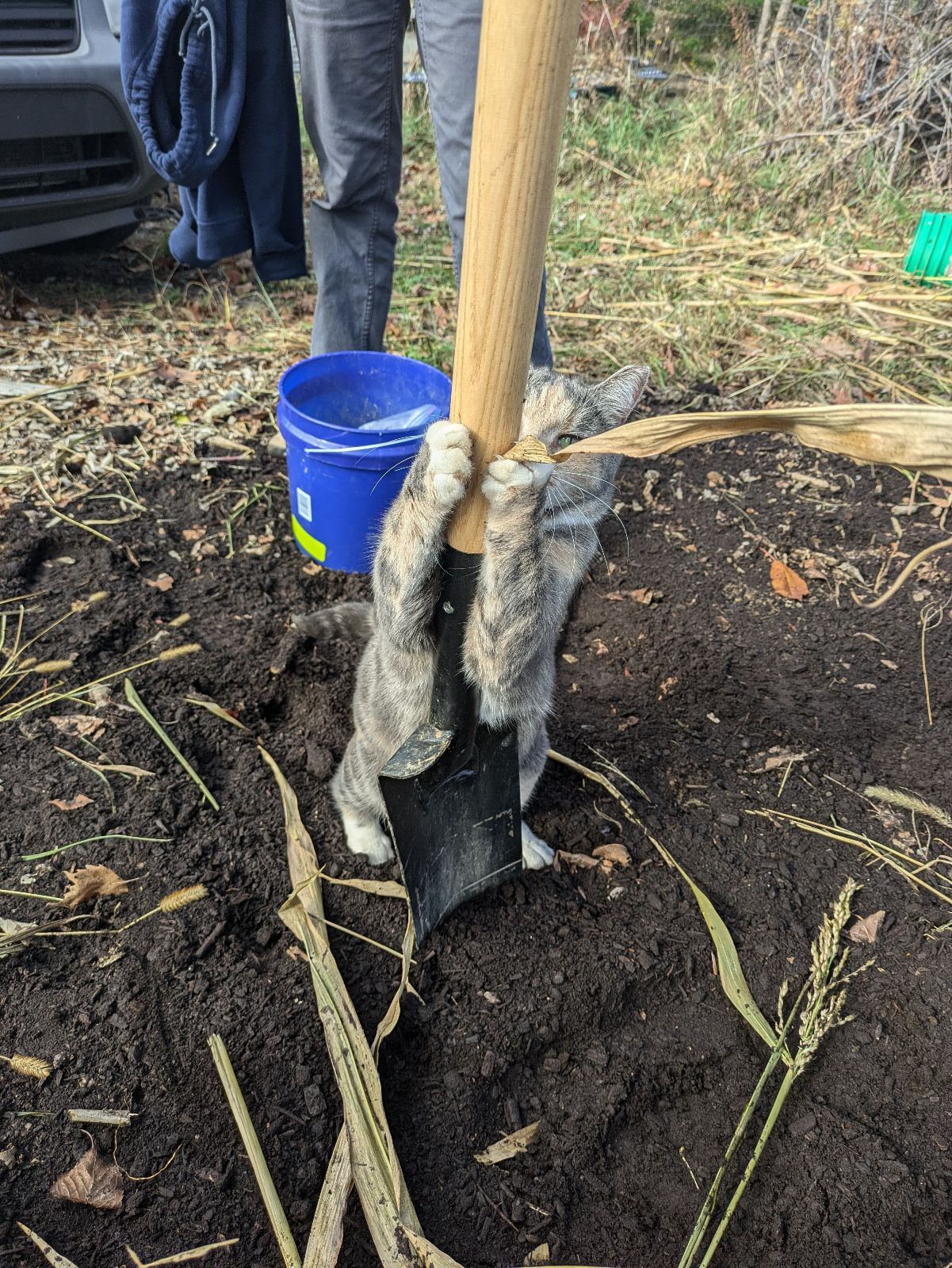
Holes dug in the name of soil science
Active farmer research collaborators, across Pennsylvania, Maryland, Maine, New Jersey, New York, and Vermont
50% of farmer research collaborators have been in the study for at least 3 years. Seeing data year-after-year is the best way to gain insights into changes in the soil.
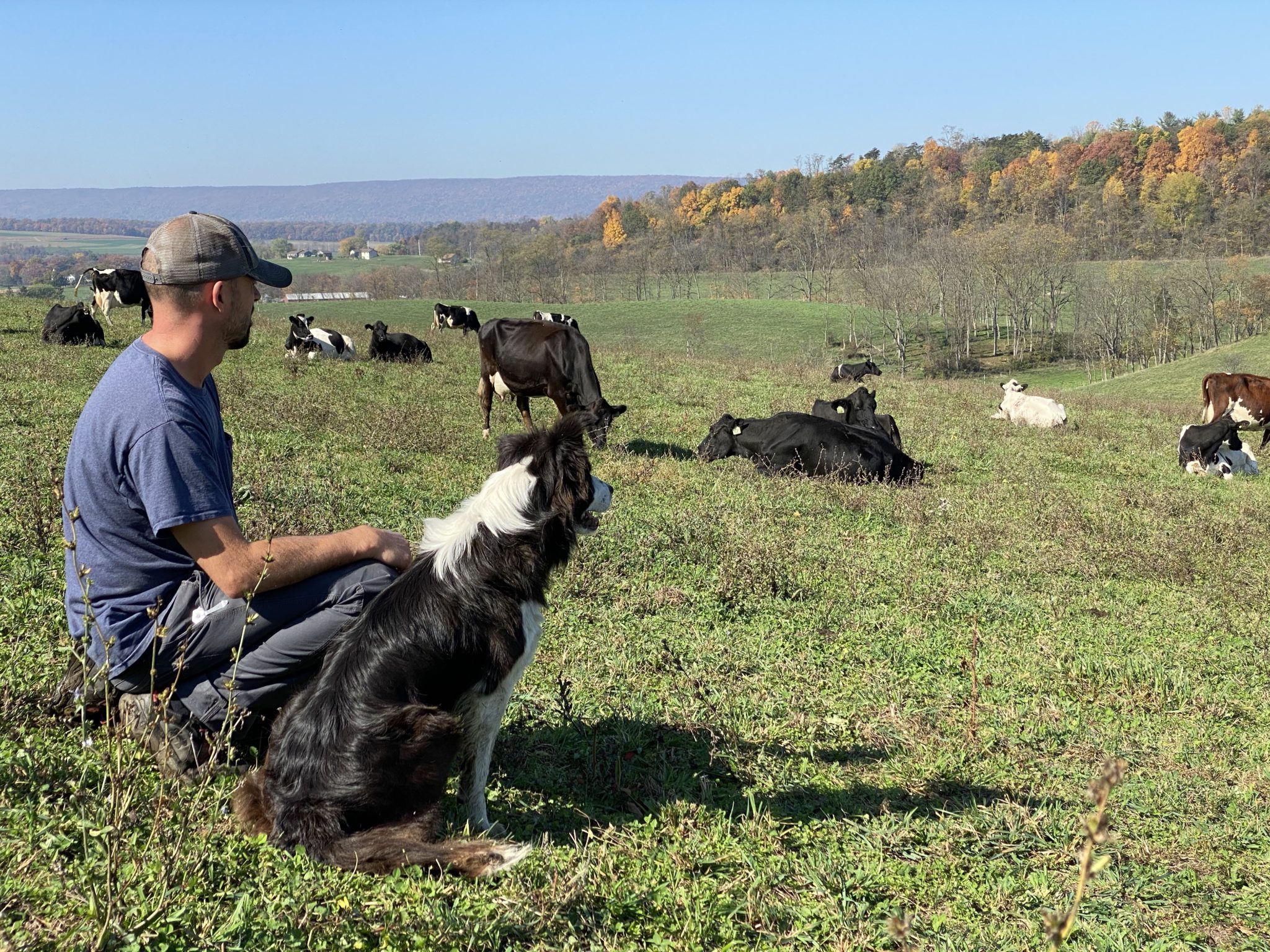
Since the 1970s, the farmers at Rock Hollow Dairy in Perry County, Pennsylvania have been working to prioritize the health of their herd and the health of the land. Learn what practices are helping them accomplish these goals, and how the results are showing up in their soil.
Read Rock Hollow's Story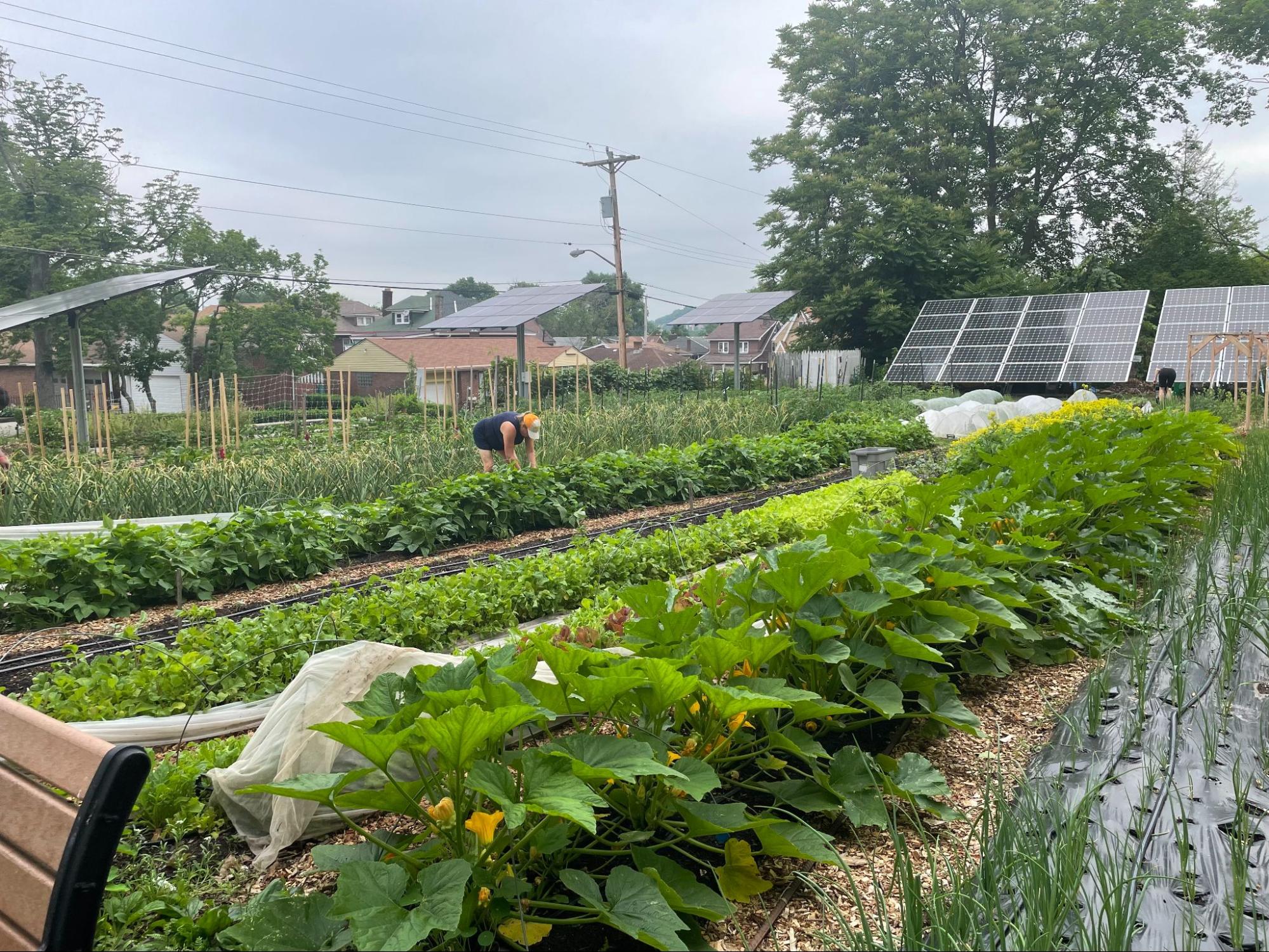
Shiloh Farm is working to breathe life into the soil on a small but mighty vegetable plot in Pittsburgh. Learn how their soil health data helps them monitor their remediation progress and make informed decisions about amendments.
Read Shiloh Farm's storyUrban farms are essential for healthy communities but face uphill battles for land & resources.
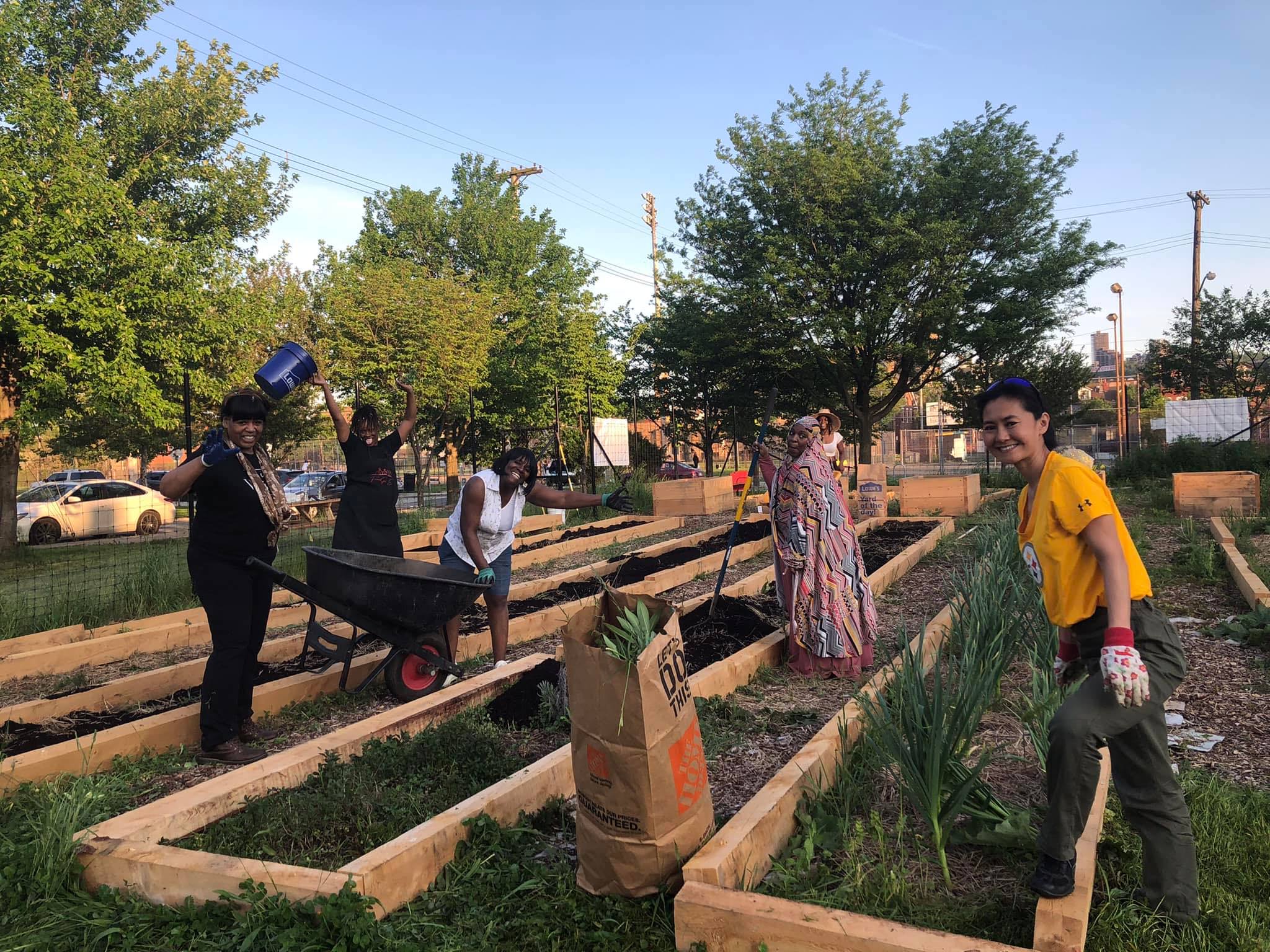
In 2024 alone, the Food for the Soul Community Farm donated over 5,000 pounds of food and logged thousands of volunteer hours engaging with community programs like Light of Life Rescue Mission.
Since their founding, the farm has invested tens of thousands of dollars in infrastructure such as fencing and a municipal water line. Thanks to hard work and good stewardship of the growers, the soil of this once vacant lot now produces food, supports biodiversity, infiltrates stormwater, and sequesters carbon.
Despite having secured a multi-year lease from the City of Pittsburgh’s Adopt-a-Lot program as well as letters of support from a member of Pittsburgh City Council and from Manchester Citizens Corporation, farm manager Ebony Lunsford-Evans says the farm is at risk of being displaced by developers.
“Unfortunately many urban growing spaces face a similar situation to Food for the Soul,” says Russell Thorsen, Pasa’s Urban Agriculture Technical Assistance Manager.
“Community members come together to remediate, beautify, and turn abandoned vacant lots into a flourishing garden, only to have developers challenge their land tenure. The City of Pittsburgh owns over 1,200 vacant parcels—there is more than enough room for new housing development and urban agriculture to exist together.”
Russell works with Ebony and dozens of other farmers across the Three Rivers region to provide direct support with things like hoop house installation and heavy metal detection. They also connect urban farmers with each other through workshops and skill shares on topics like compost, irrigation, and pest management.
Despite having secured a multi-year lease from the City of Pittsburgh’s Adopt-a-lot program the farm is at risk of being displaced by developers.
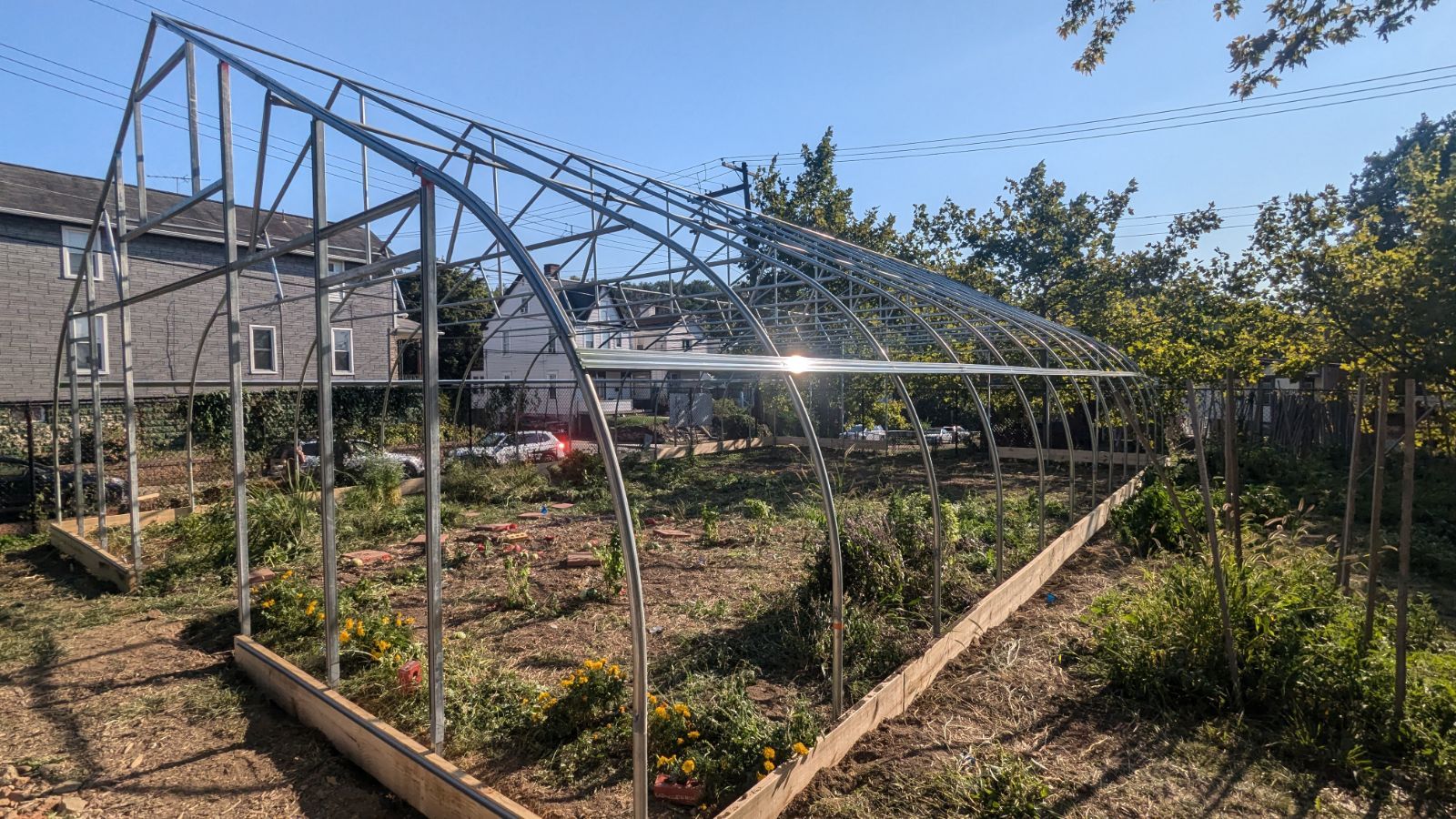
Hoop house Russell helped Ebony install at her other site, One Sound Farm
And they use their voice to advocate for policies that protect urban growing spaces.
In the summer of 2024 Russell delivered testimony on HB920–Urban Agricultural Incentive Zones, legislation proposed by Pennsylvania House Representative Chris Rabb to give municipalities the ability to classify urban farms and gardens as more than “vacant lots” and the power apply appropriate abatements in recognition of the contributions and services to the city.
We're connecting urban farmers with resources & advocating for policy change.

Our Farmer Outreach team is supporting opportunities for underserved and systemically marginalized farmers, including farmers of color, urban farmers, and veteran farmers, to network with one another and share knowledge, skills, challenges, successes, and innovations.
Meet our farmer outreach team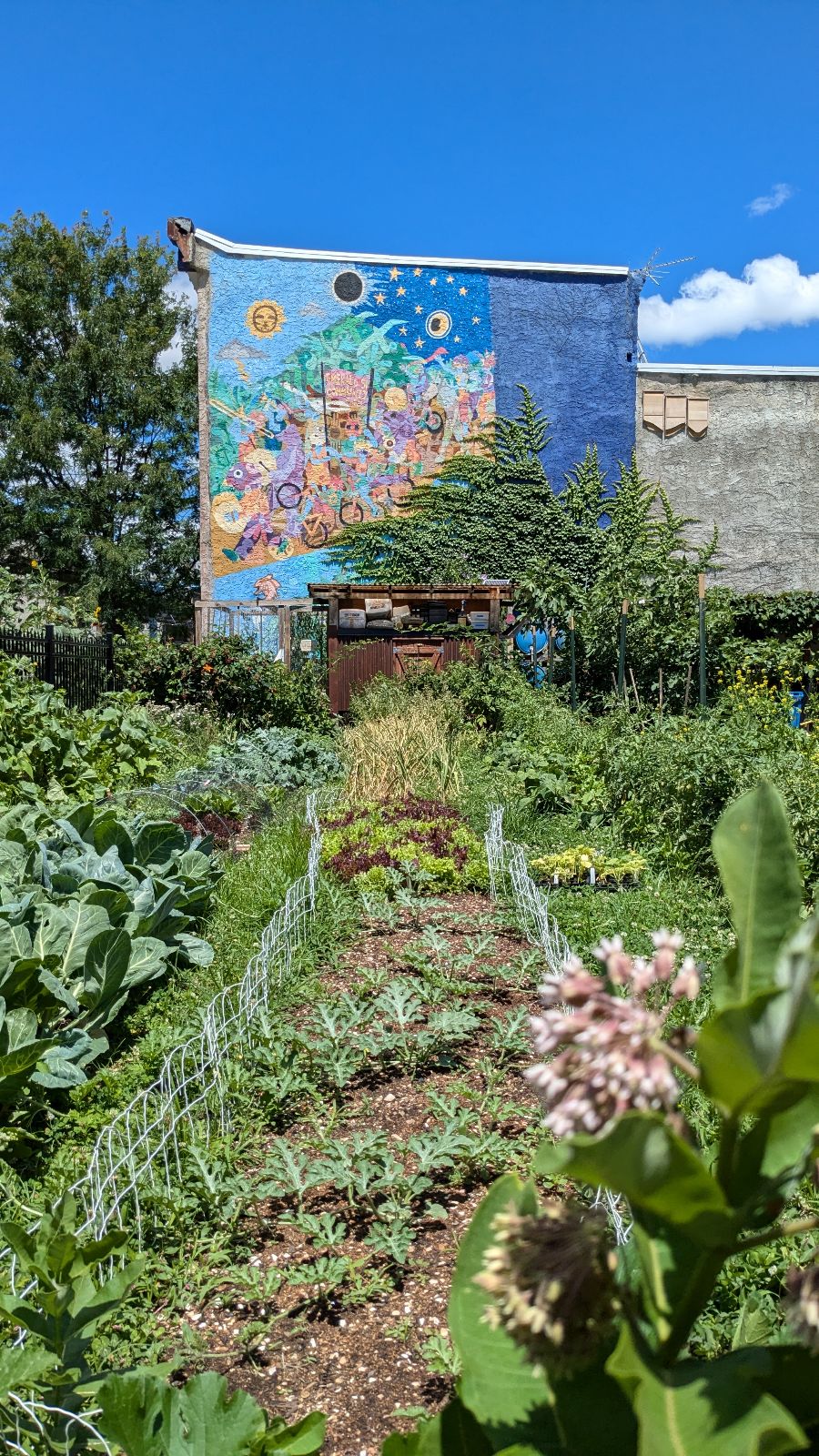
We shared testimony, including additional recommendations from urban farmers, at a House Agriculture & Rural Affairs Committee Hearing on Urban Agriculture & HB920. We also submitted comments in support of urban farms to Philadelphia City Council’s hearing on the Land Bank.
Read our public comments
Representative Chris Rabb collected feedback from the Pasa community on House Bill 920, his current proposal in the Pennsylvania General Assembly aimed at strengthening support networks for urban producers.
Watch the recordingImmigrant labor is the backbone of our food system.
For farm owners in the Pasa community, commitment to sustainability includes prioritizing the well-being of their employees and making sure farm jobs are good jobs. Several Pasa members were recipients of the Farm Labor Stabilization and Protection Pilot Program funds, aimed at supporting agricultural employers in implementing labor standards to promote a safe, healthy work environment for both US workers and workers hired under the seasonal H-2A visa program.
Many immigrant farmworkers in our community enthusiastically return year after year, and take great pride in their role on the farm. Farm owners express deep appreciation for skills and specialized knowledge these workers bring to the operation as well as gratitude for the sacrifices they make being away from their families for most of the year.
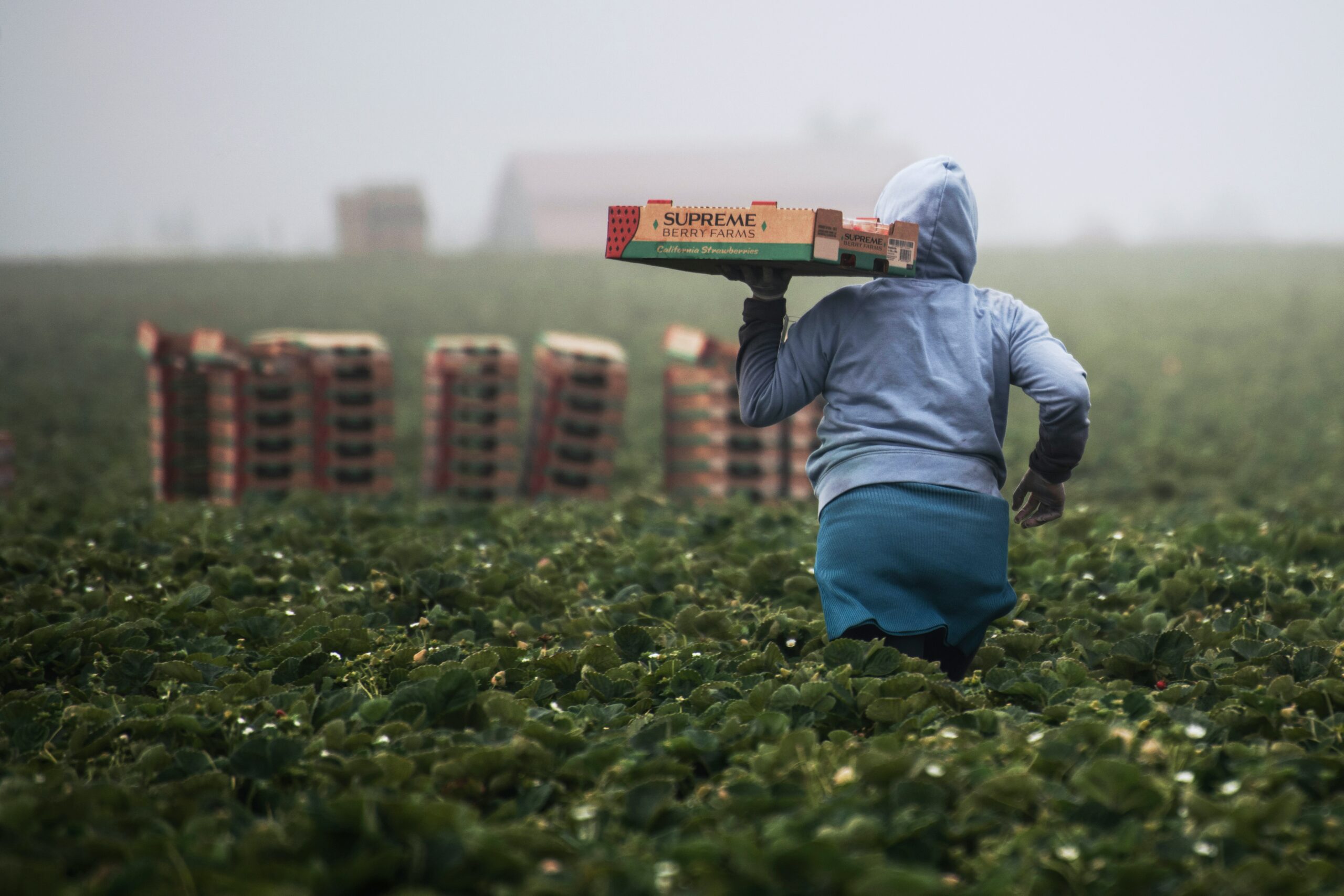
The US food system depends on a majority immigrant workforce, including 80% of farmworkers, many of whom face hazardous working conditions, exploitative labor practices, and unsafe housing but fear to speak up because of the fear of employer retaliation and very real threat of deportation.
While many farm and food business owners were eligible for support programs during the pandemic, most frontline workers on farms and in meatpacking plants were left out.
In 2022 Pasa was one of 15 organizations selected by the USDA to distribute one-time $600 relief payments through the Farm and Food Workers Relief Program.
Over the next two years we processed over 58,000 applications from workers in Connecticut, Delaware, District of Columbia, Maine, Maryland, Massachusetts, New Hampshire, New Jersey, New York, Ohio, Pennsylvania, Rhode Island, Vermont, and West Virginia.
Many workers face hazardous conditions, exploitative labor practices, unsafe housing, and the threat of deportation.
Our team also mobilized for in-person application events across these states in coordination with our program partners.
The application officially closed on December 31, 2024. Here’s a look at the impact of this program to date.
Over $22 million in relief payments have been disbursed since 2022.
More than 38,000 farm and food workers have received relief payments since 2022.
We have supported 37 in-person events since 2022.
Beyond the numbers
Maddie Pearson,, Training and Application Specialist from Pasa’s Farm and Food Workers Relief team,
reflects on the lessons learned throughout the program and the hard work still left to be done.
As Pasa’s administration of the USDA Farm and Food Workers Relief (FFWR) program comes to a close, my biggest takeaway is this:
Beyond financial relief, we need a complete paradigm shift within sustainable agriculture and the broader US food system. We need to recognize and reward the contributions and sacrifices of this majority immigrant workforce. And we need to prioritize and protect the safety, wellbeing, dignity, and agency of farm and food worker communities.
While FFWR presented an encouraging new direction of federal resource allocation, it also revealed areas in which Pasa and the USDA were unprepared to adequately serve the full needs of farm and food workers.
At every event, our team connected with people—including children—who have been and continue to be harmed by our food system. We met applicants as young as 15 with severe burns. We met applicants in their 60s, 70s, and 80s, still working despite long-term injuries and chronic pain because they can’t afford to retire.
It was a requirement of the program that no employee or employer data would be shared with USDA. Still, countless applicants nervously asked if we would tell their employer they applied, because they feared being fired or harassed. Some individuals applied with only a photocopy of their intake paper from an Immigration and Customs Enforcement (ICE) detention center, because their documents had been confiscated.
Our team was continuously humbled by the strength of the communities we connected with and their capacity to organize and care for one another in the face of these threats.
I’m proud of the innovative and intentional ways our team worked to protect applicants’ privacy, dignity, and agency. We held ongoing discussions about how to balance the data-driven, anonymous grant reporting requirements with our deep desire to not reduce applicants to mere numbers. And while some programs have strict requirements on how relief payments could be used, we were careful to ensure recipients could spend their $600 payment however they needed.
The challenges, however, were real—language barriers, technological limitations, and other accessibility issues hindered outreach.
The success of this program relied heavily on our partner organizations and other community groups who work tirelessly to support and maintain networks of trust with intentionally marginalized communities. Whether Migrant Education Program offices or worker justice initiatives, these on-the-ground organizations led the way for applicant-centered event planning and taught our team so much about how to meaningfully show up and how we can continue engaging in acts of solidarity, not charity.
The insights our team has gained over the course of this program have made us well-positioned to initiate internal conversations within Pasa about language justice, worker-focused event design, and community autonomy.
For organizations like Pasa and for programs like FFWR, the lesson is clear: we need to show up as partners who work to structurally shift how resources are distributed—and this means we need financial investment as well as governmental policies to continue advocating for and protecting those who are at the heart of our nation’s agricultural system.
What comes next must be about amplifying the voices of those who have always been doing the work, learning from their resilience, and supporting their efforts; not dictating how support should look or imposing systems that don’t account for their wants and needs. Our program has been, and hopefully will continue to be, an incredible chance for Pasa to commit to these priorities and communities.
Names, faces, and specific locations have been removed or obscured to protect workers from targeting or retaliation.
recipient in West Virginia

farm manager in New York
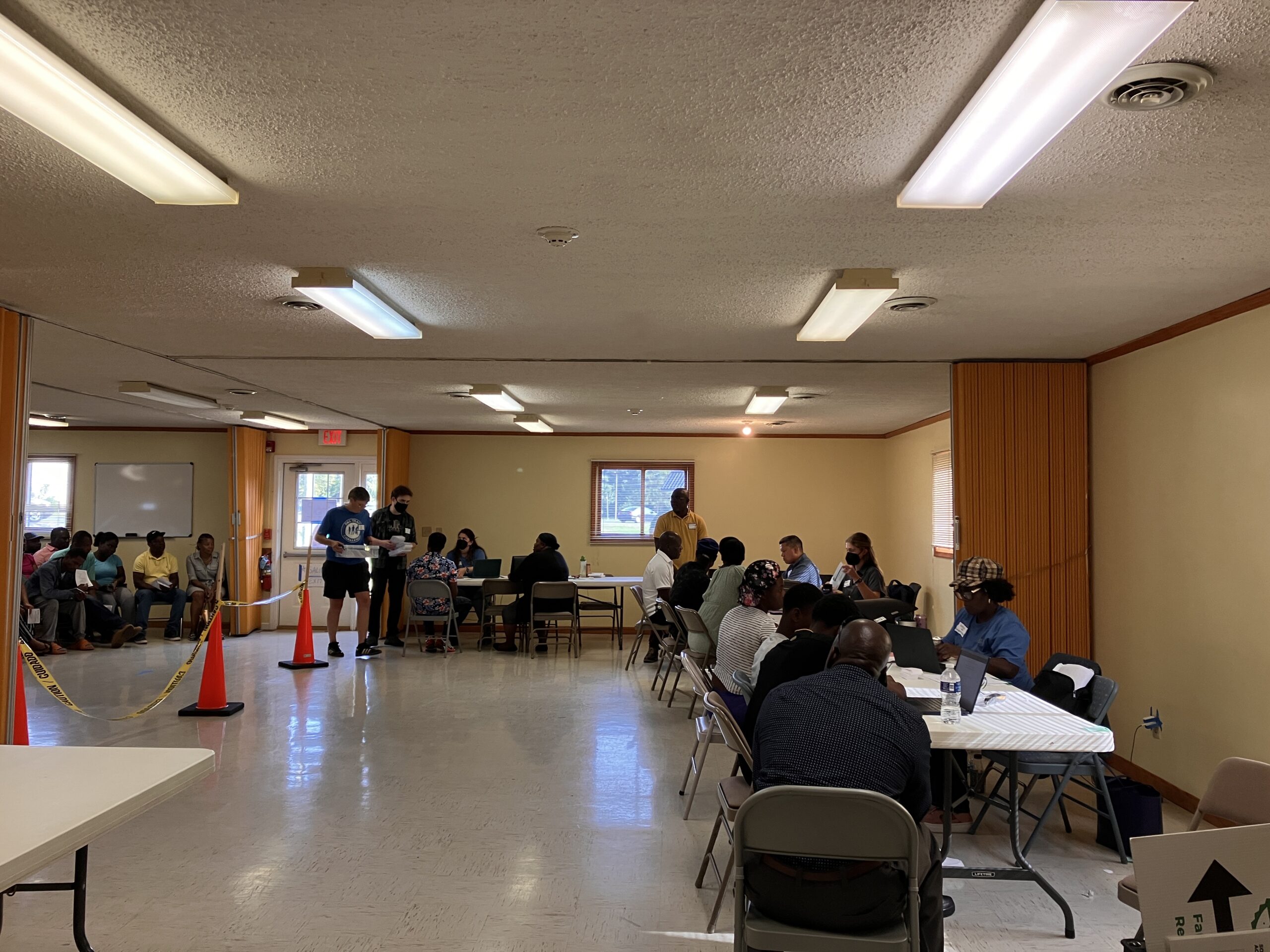
recipient in Pennsylvania
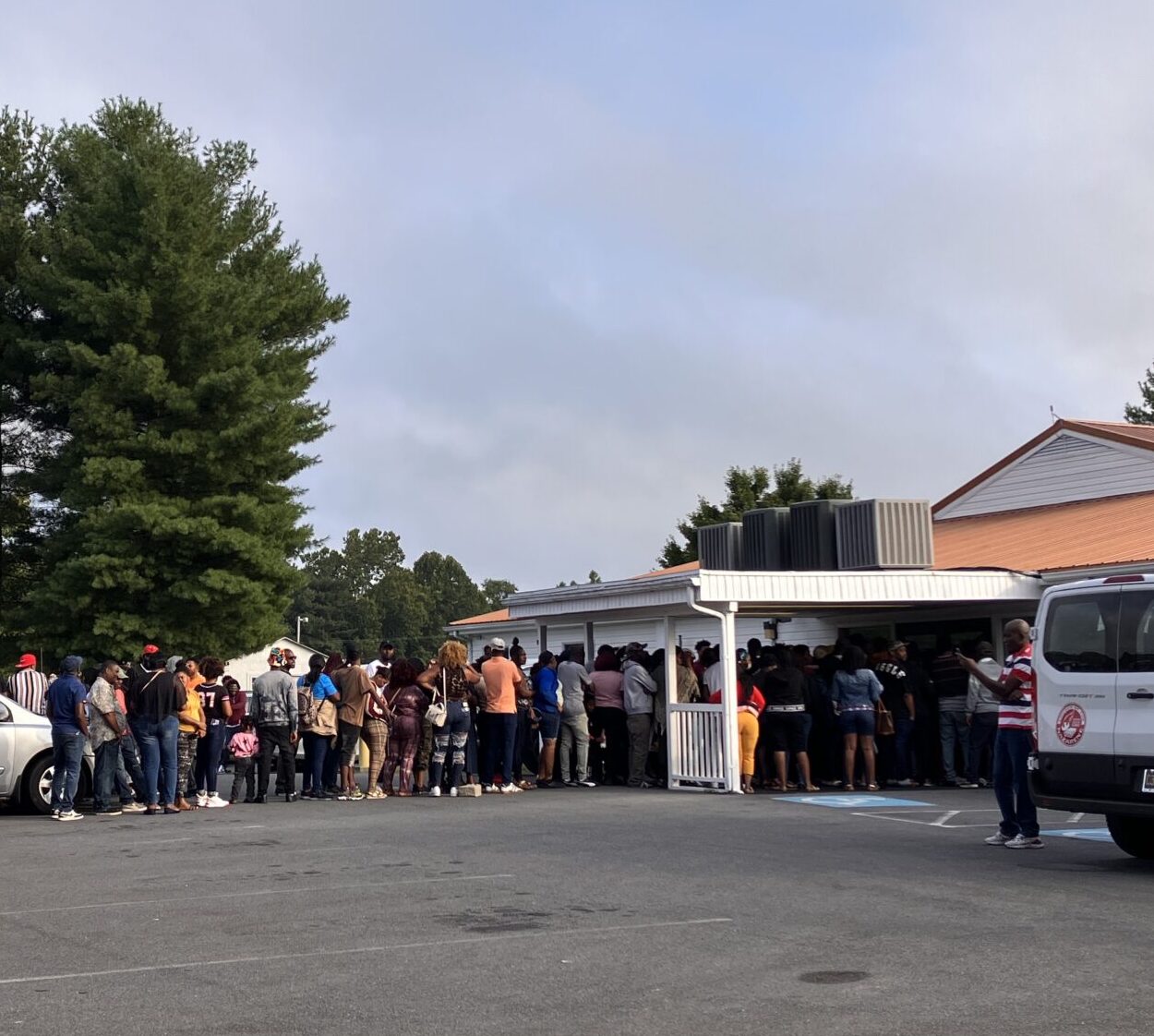
recipient in Ohio
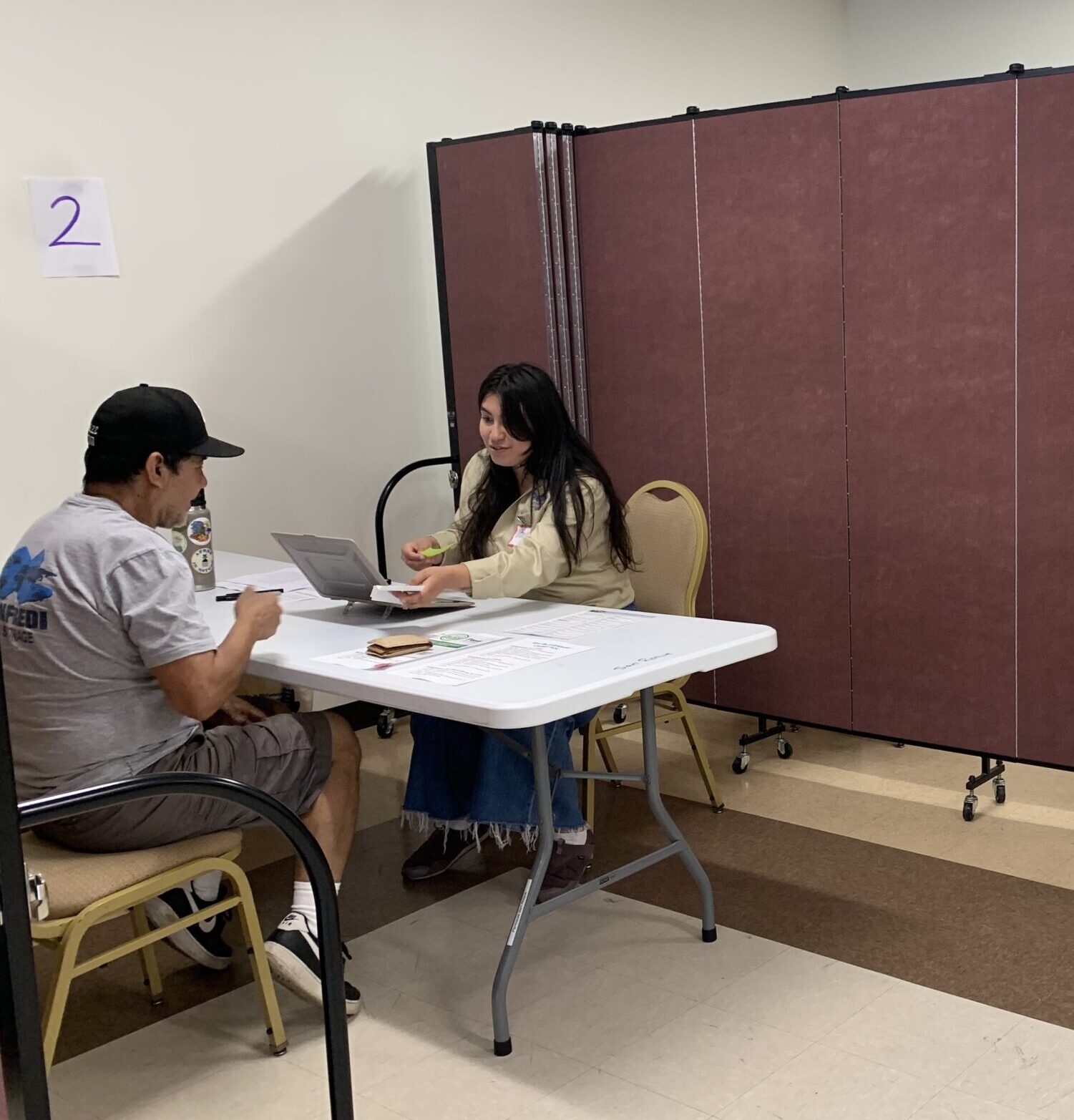
farm owner in New York

recipient in West Virginia
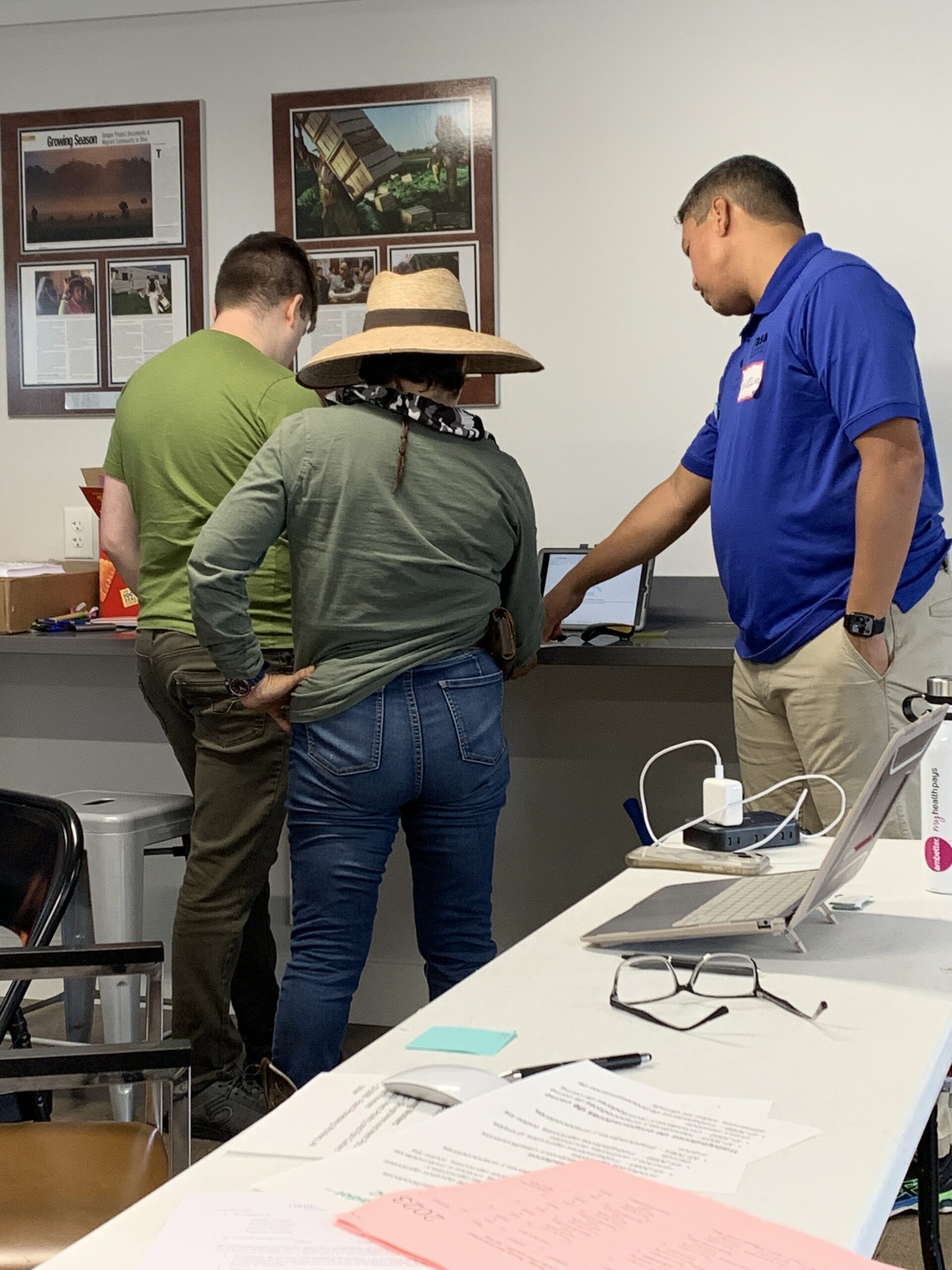
recipient in New York
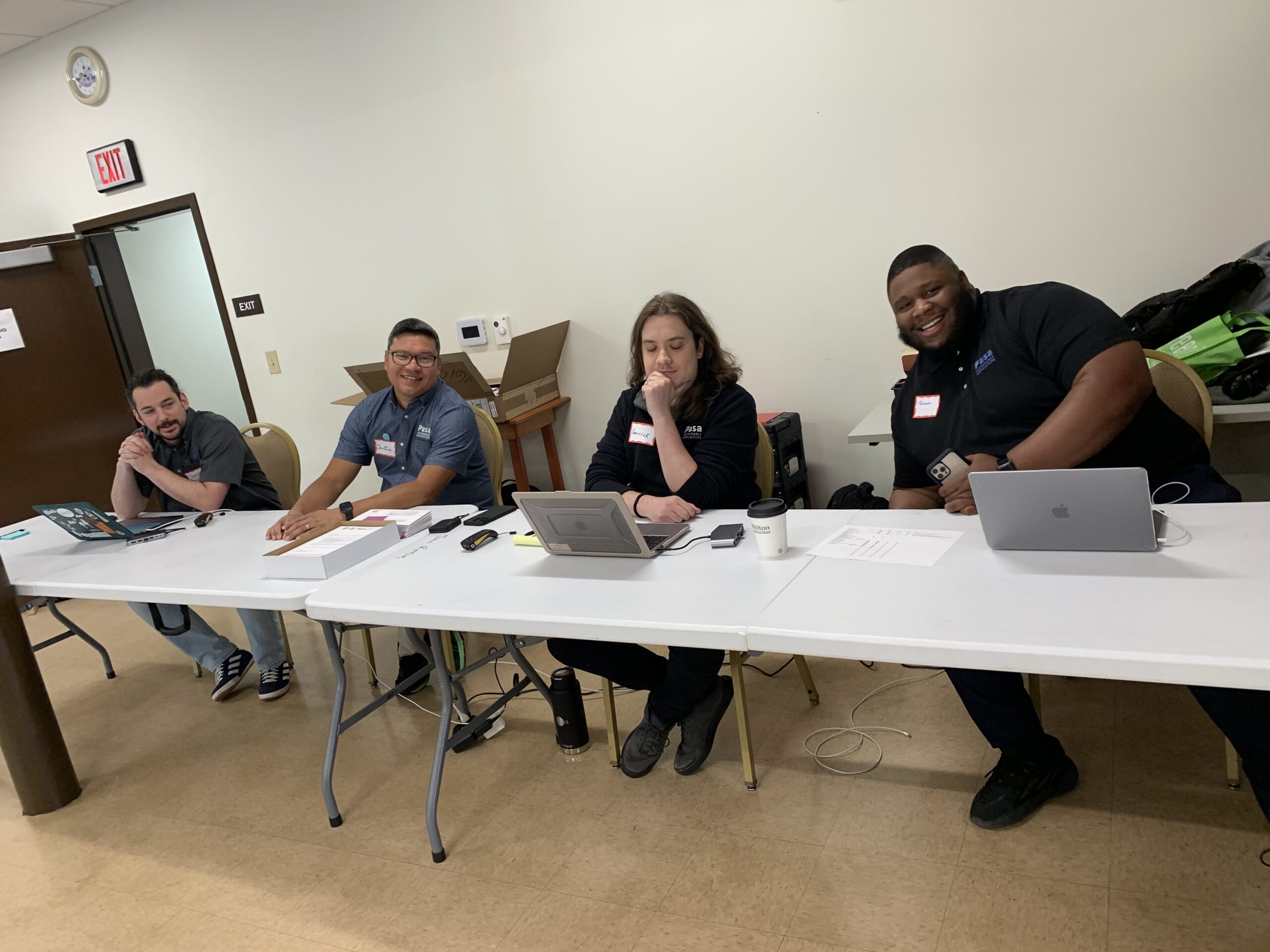
Our work is far from over.

Pasa’s policy team sought feedback from our community and shared comments on how to ensure protections for farmworkers in OSHA’s proposed rulemaking on Heat Injury and Illness Prevention in Outdoor and Indoor Work Settings.
Read our comments
Pasa’s Farmer Engagement Coordinator Priscilla Ruilova highlights our work with the Driving PA Forward Coalition and shares four things you can do today to support safety for farmworkers and for all Pennsylvanians.
Watch the videoCommunity is the heart of our work.
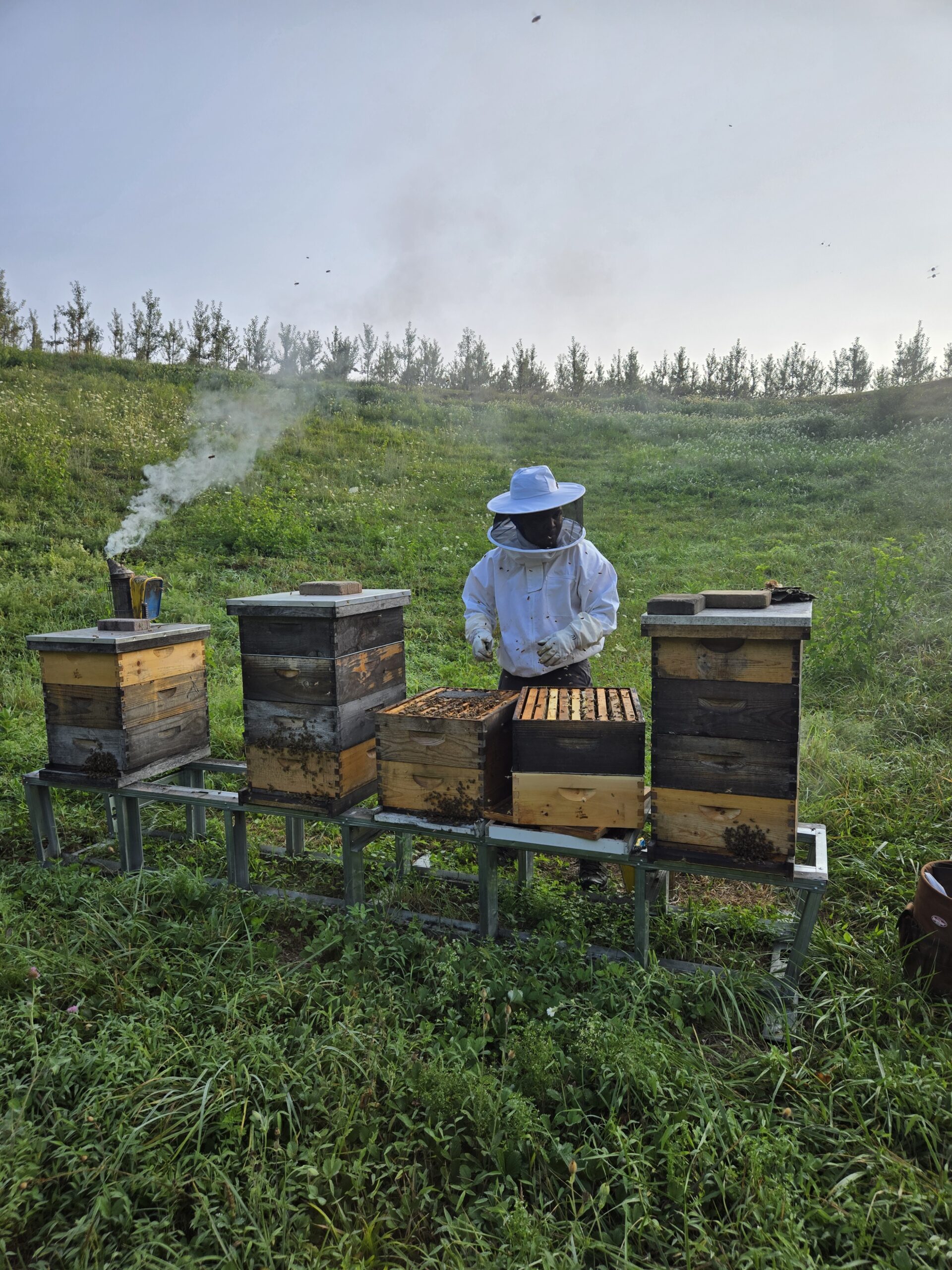
Pasa Farmer Outreach Specialist San Sankofa spoke with Mark Fujita, a military veteran and beekeeper at Funny Farm Apiaries about the Hives For Heroes program, which pairs veterans with beekeeping mentors.
Watch the video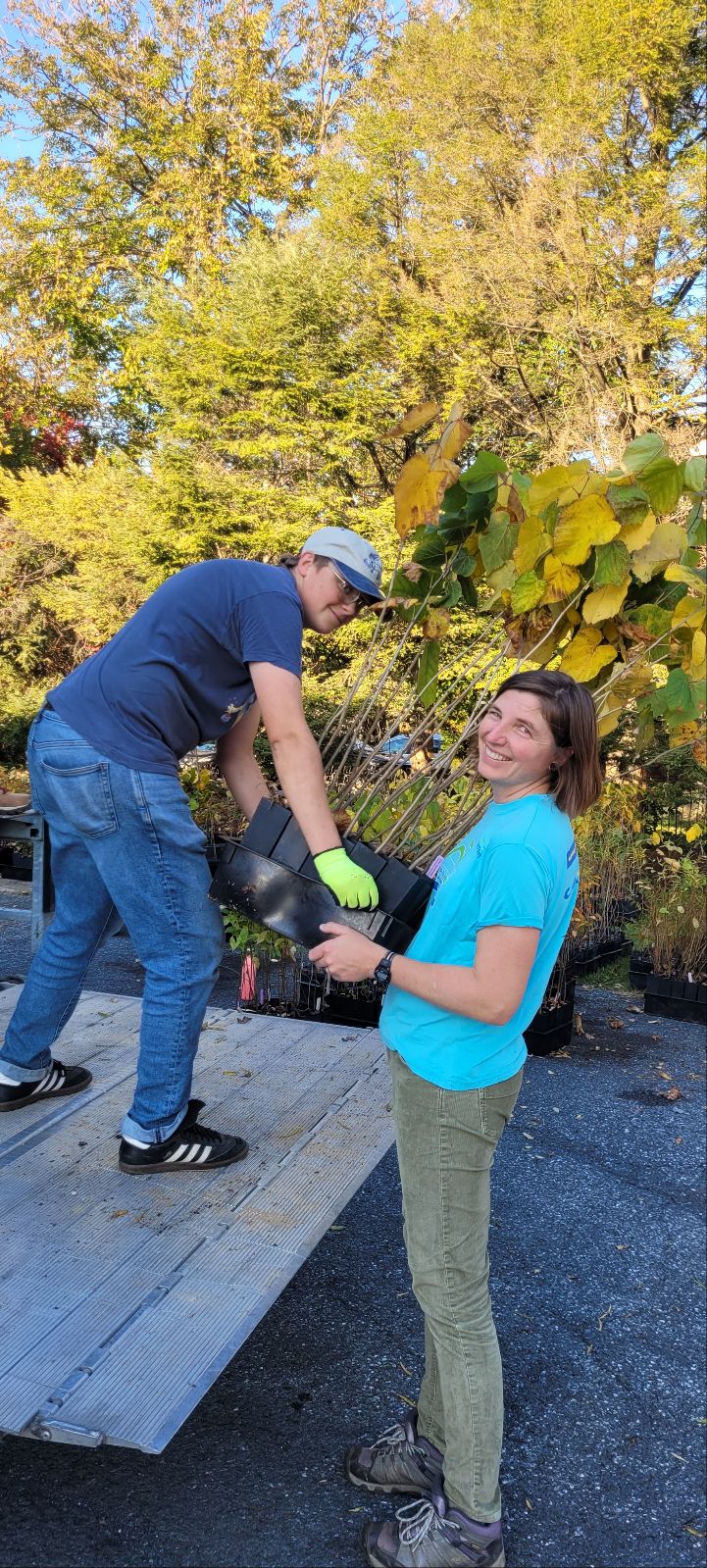
We teamed up with Keystone 10 Million Trees Partnership again to give away more than 11,000 trees to farmers, gardeners, and community members.
Learn more about Keystone Ten Million Trees
We invited Latiné farmers in our community like Nico, a dedicated Guatemalan farmworker at Spiral Path Farm, to share the foods they grow that help preserve their culture and heritage.
Watch the video
To celebrate National Farmers Market Week we stopped by Rittenhouse Farmers Market in Center City Philadelphia to interview customers, staff, and farmers about why they love farmers markets.
Hear what they had to sayYour support makes this work possible.
Fiscal year 2024
$17,903,736
92% Grants & awards
5% Individual contributions & dues
1% Events
1% Sponsorships & underwriting
1% Other
$17,482,459
95% Programs & services
3.5% General & admin
1.5% Fundraising

Special thanks to these organizations and agencies for supporting our work:
Claude Worthington Benedum Foundation
The Corps Network
Dairy Grazing Apprenticeship
Farm Aid
The Heinz Endowments
Hillman Family Foundations
National Association of State Departments of Agriculture Foundation
National Center for Appropriate Technology
National Fish and Wildlife Foundation
National Sustainable Agriculture Coalition
Natural Resources Defense Council, Inc.
Regenerative Agriculture Foundation
Organic Valley/CROPP Cooperative
Pennsylvania Department of Agriculture
Pennsylvania Department of Community and Economic Development
Pennsylvania Department of Labor and Industry
The Pennsylvania State University
Pittsburgh Food Policy Council
Platform for Agriculture and Climate Transformation
Richard King Mellon Foundation
Silicon Valley Community Foundation Tundra Glacier Fund
State of Vermont, Agency of Agriculture, Food and Markets’ Northeast Dairy Business Innovation Center
Tufts College
USDA Agricultural Marketing Service
USDA Farm Service Agency Outreach Office
USDA Natural Resources Conservation Service
USDA Office of Partnerships and Public Engagement
US Department of Commerce
William Penn Foundation
Your support is critical to sustaining this work.
“When I donate money to an organization I’m always wondering, ‘Does this actually help?’ I know when you donate to Pasa it does, because I have been a recipient of your generous support. From workshops to technical support to community building, I know that I am a better farmer, business owner, land steward, and employer because of Pasa’s support.”
—Liz Krug of Endless Roots Farm
